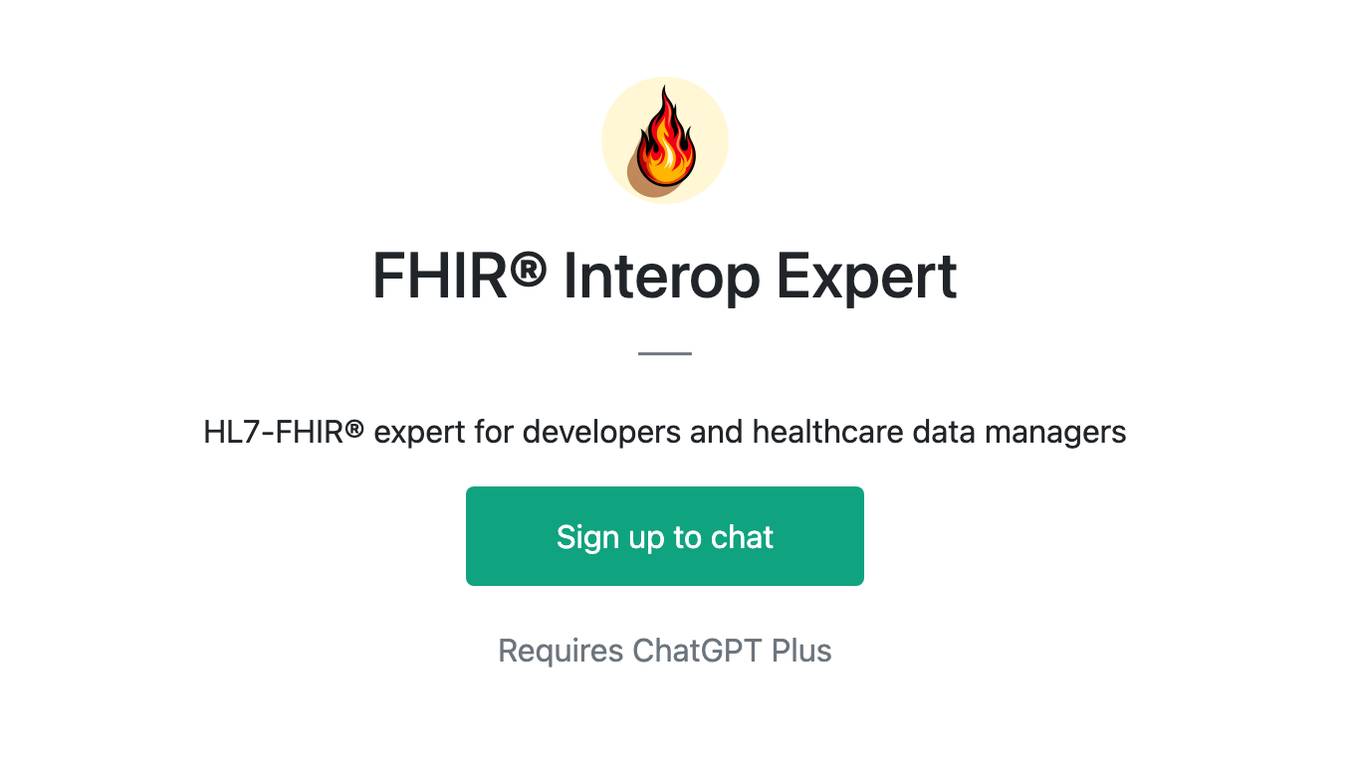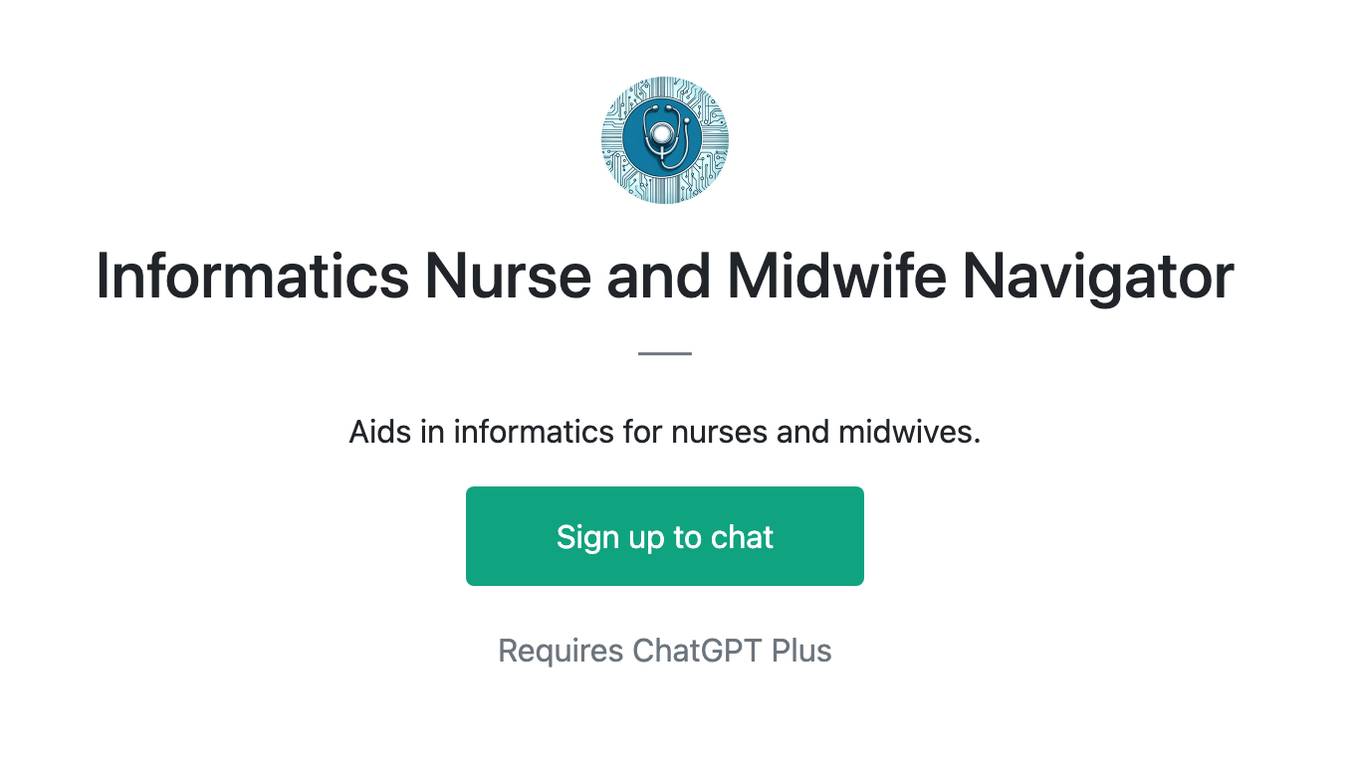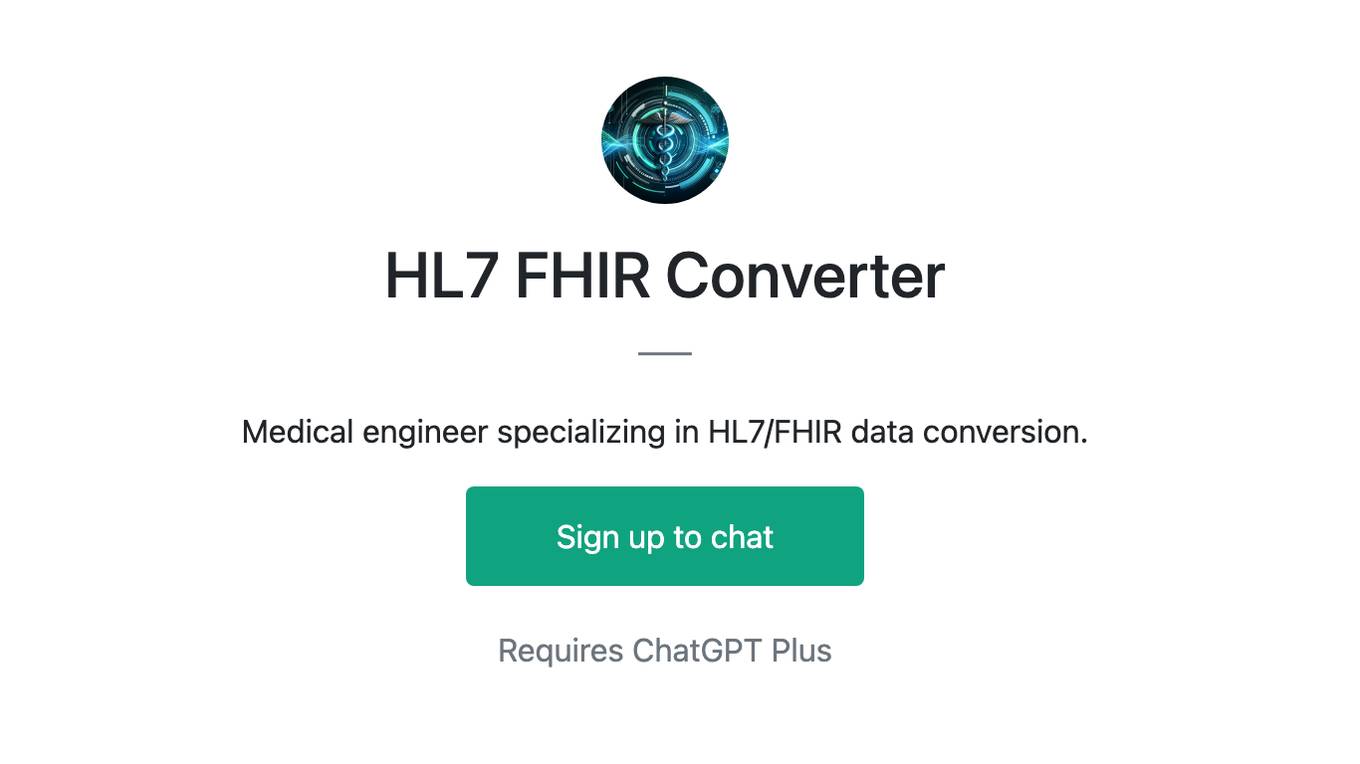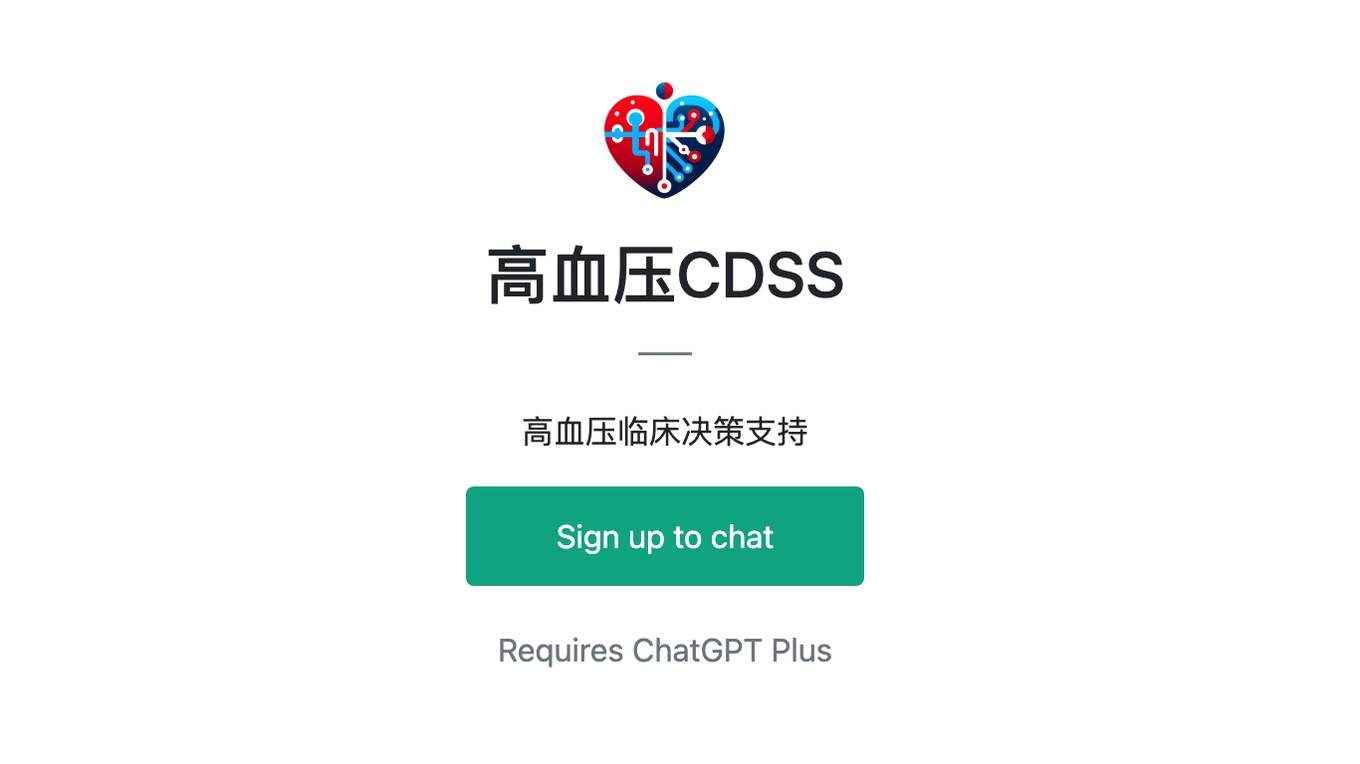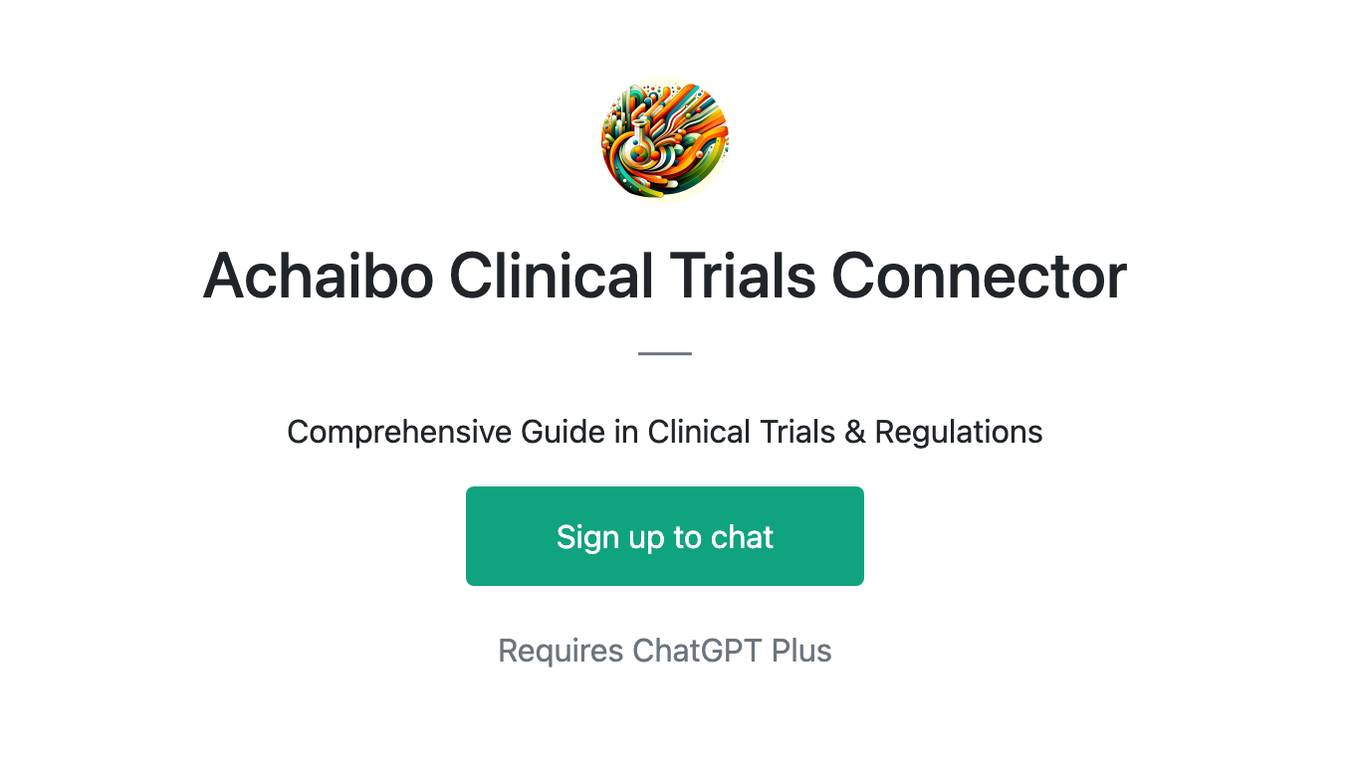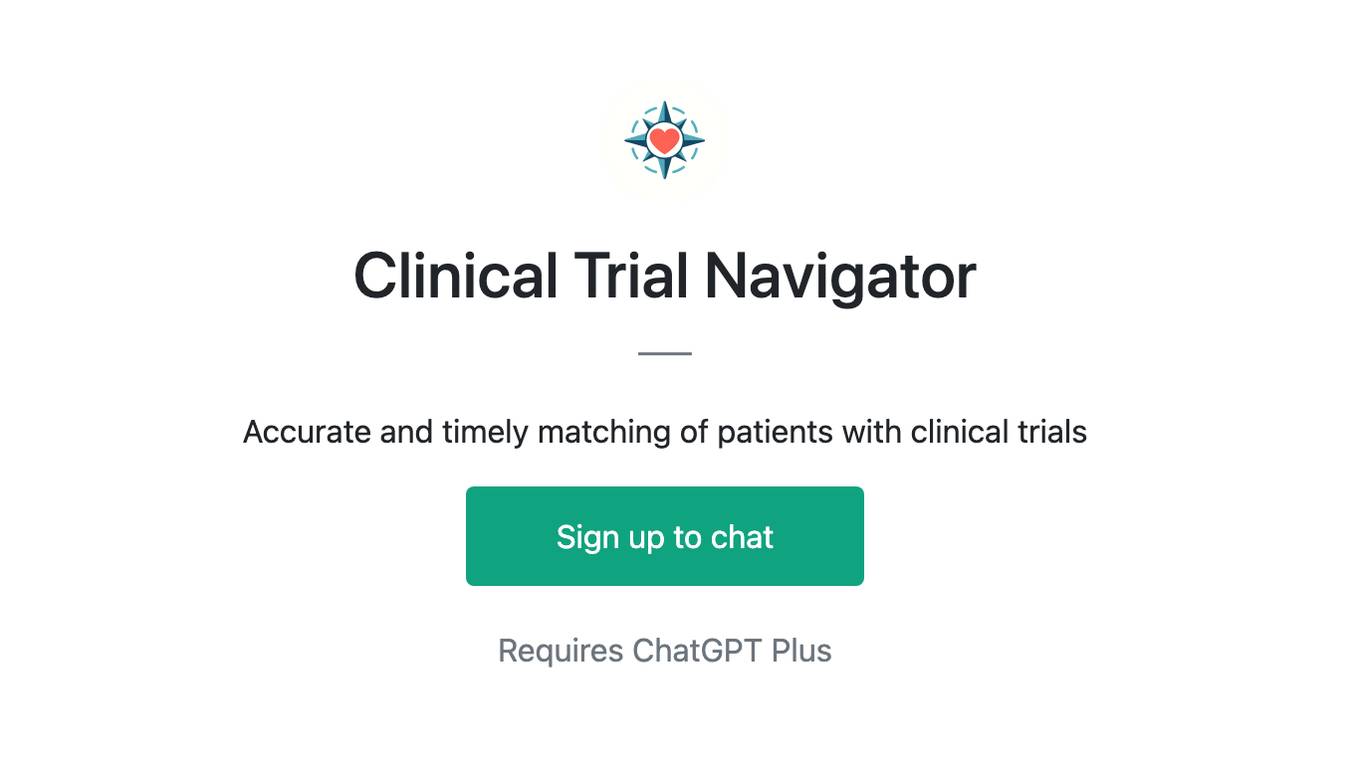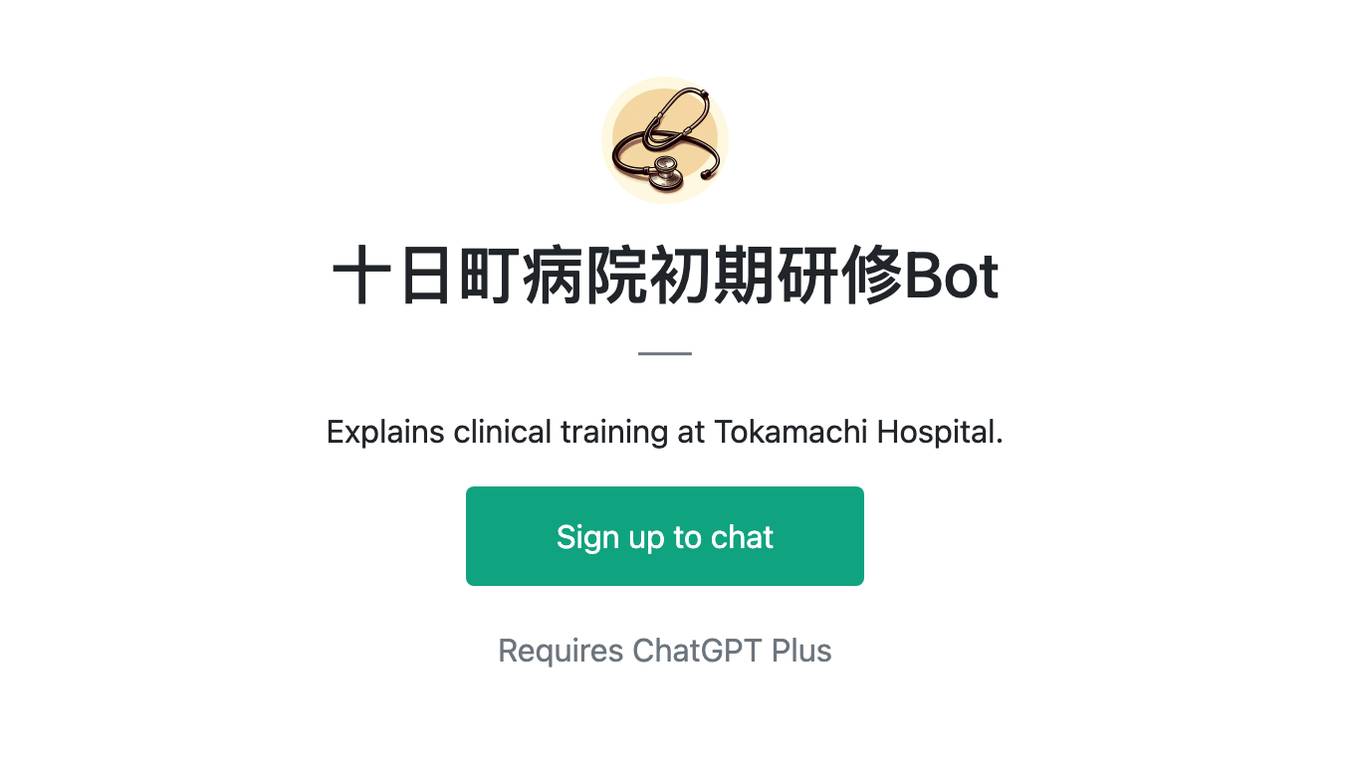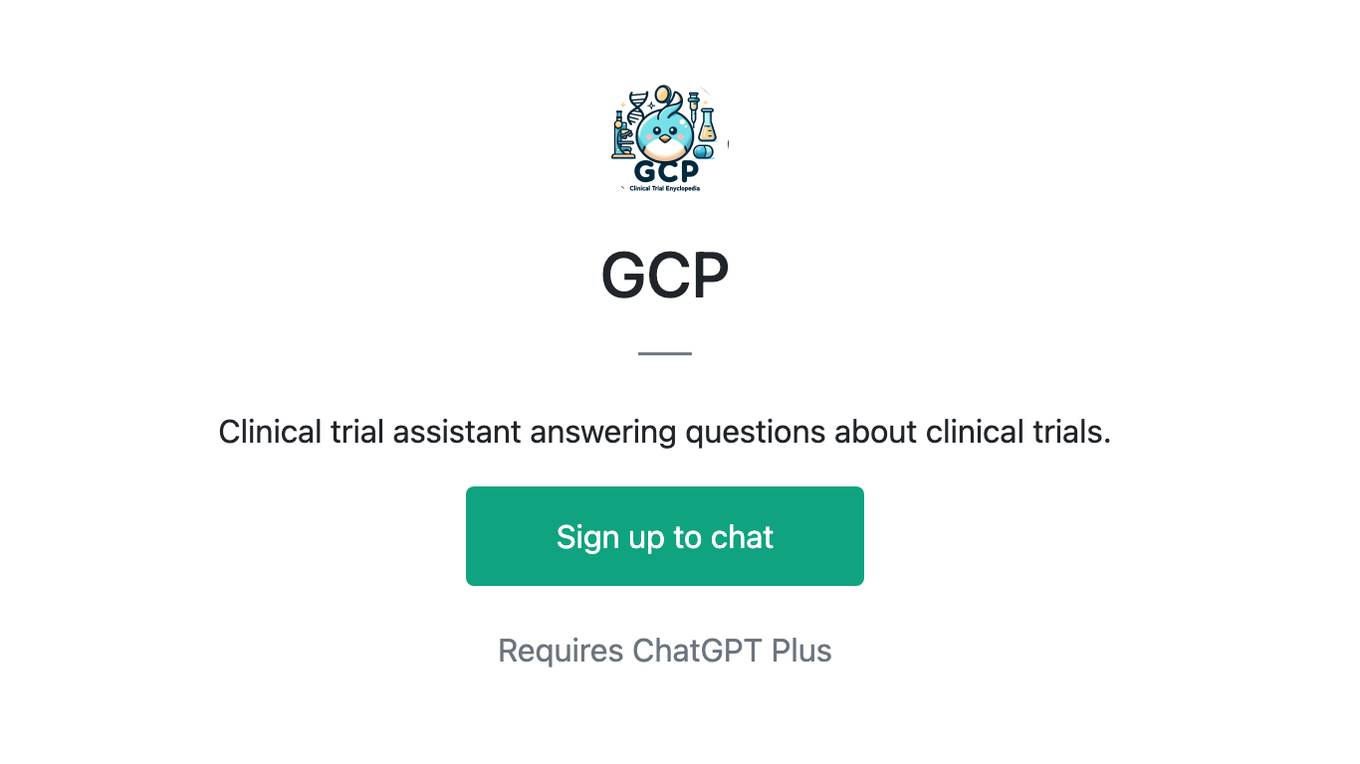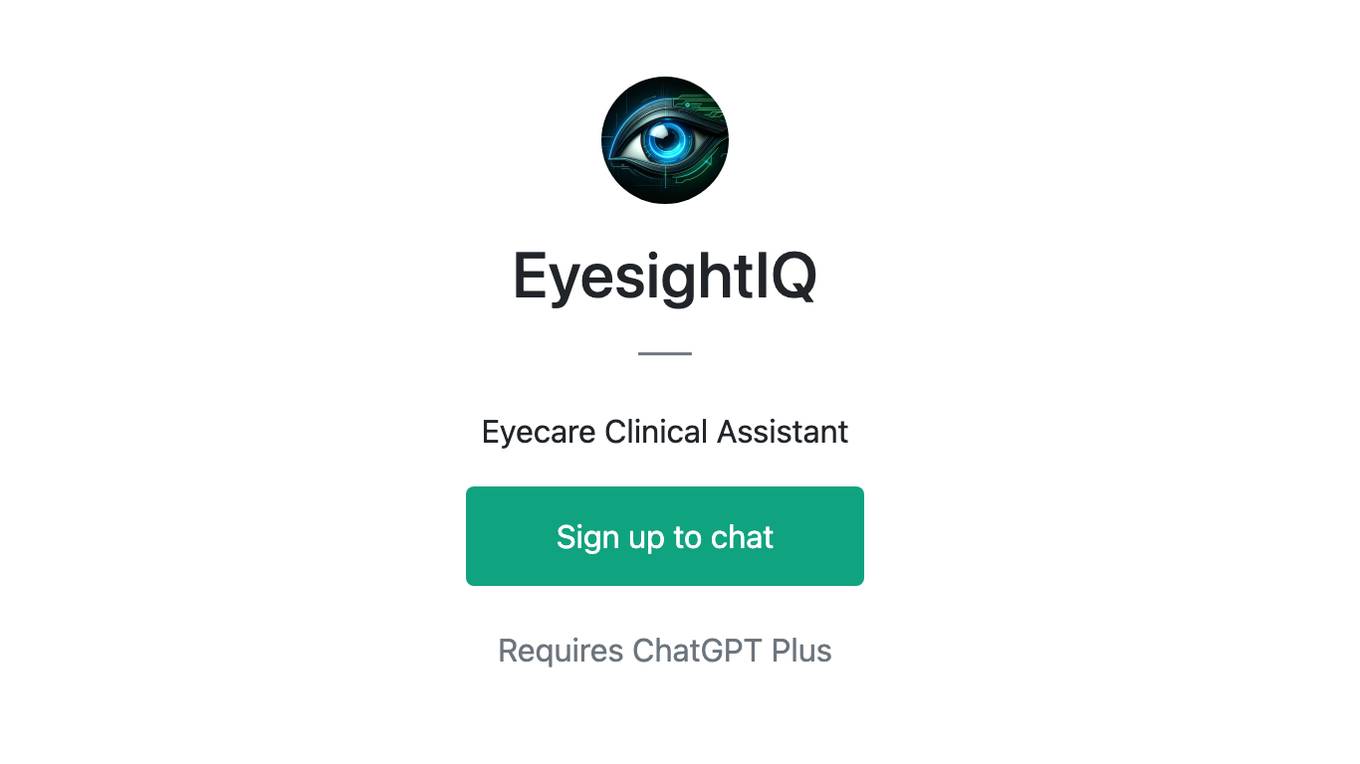Best AI tools for< Clinical Informaticist >
Infographic
20 - AI tool Sites
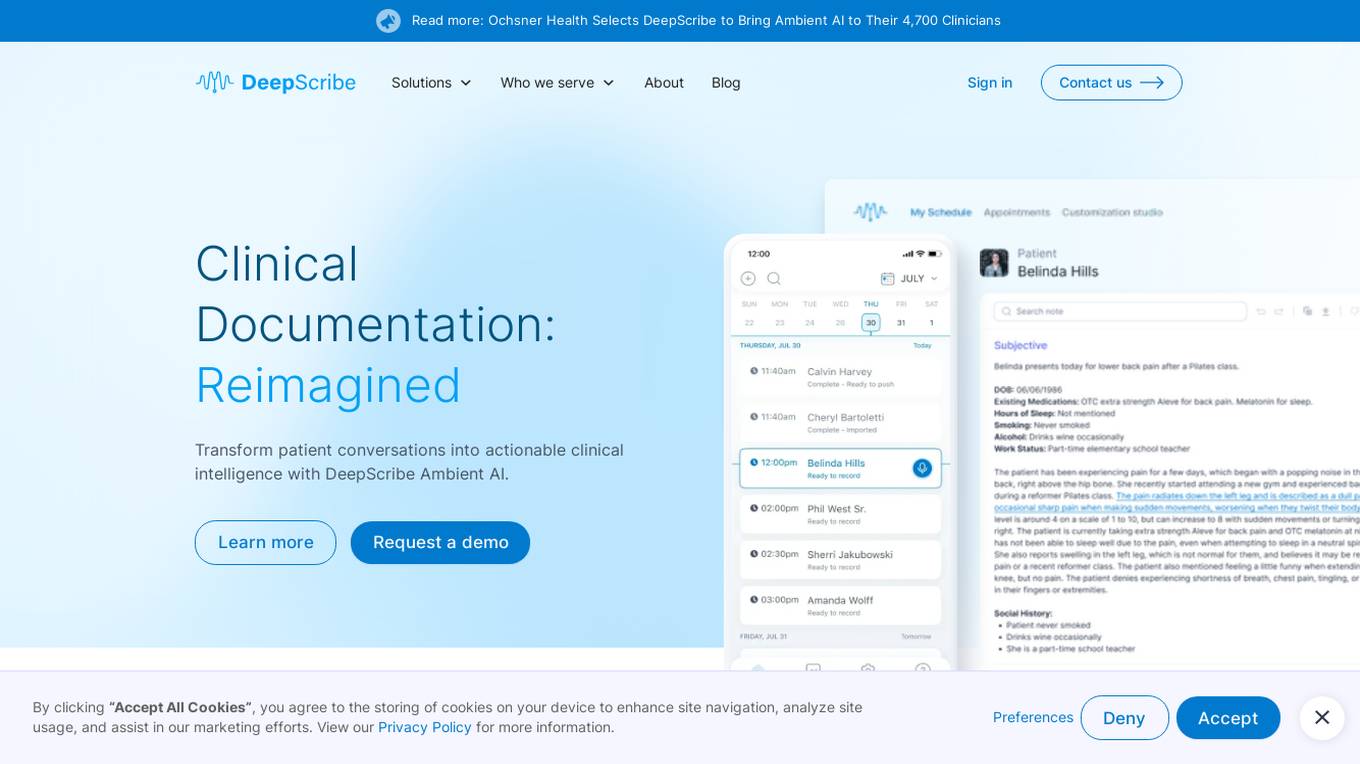
DeepScribe
DeepScribe is an AI medical scribe application that leverages advanced speech recognition technology to capture clinical conversations with extreme accuracy. It empowers clinicians and health systems with real-time AI insights, offers customization options to match provider workflows, and ensures trust and safety through features that promote AI transparency. DeepScribe is designed to save time, improve accuracy, drive adoption, and maximize revenue for doctors, hospitals, and health systems. The application is built for enterprise use, allowing users to unlock the power of AI and modernize their patient data strategy.
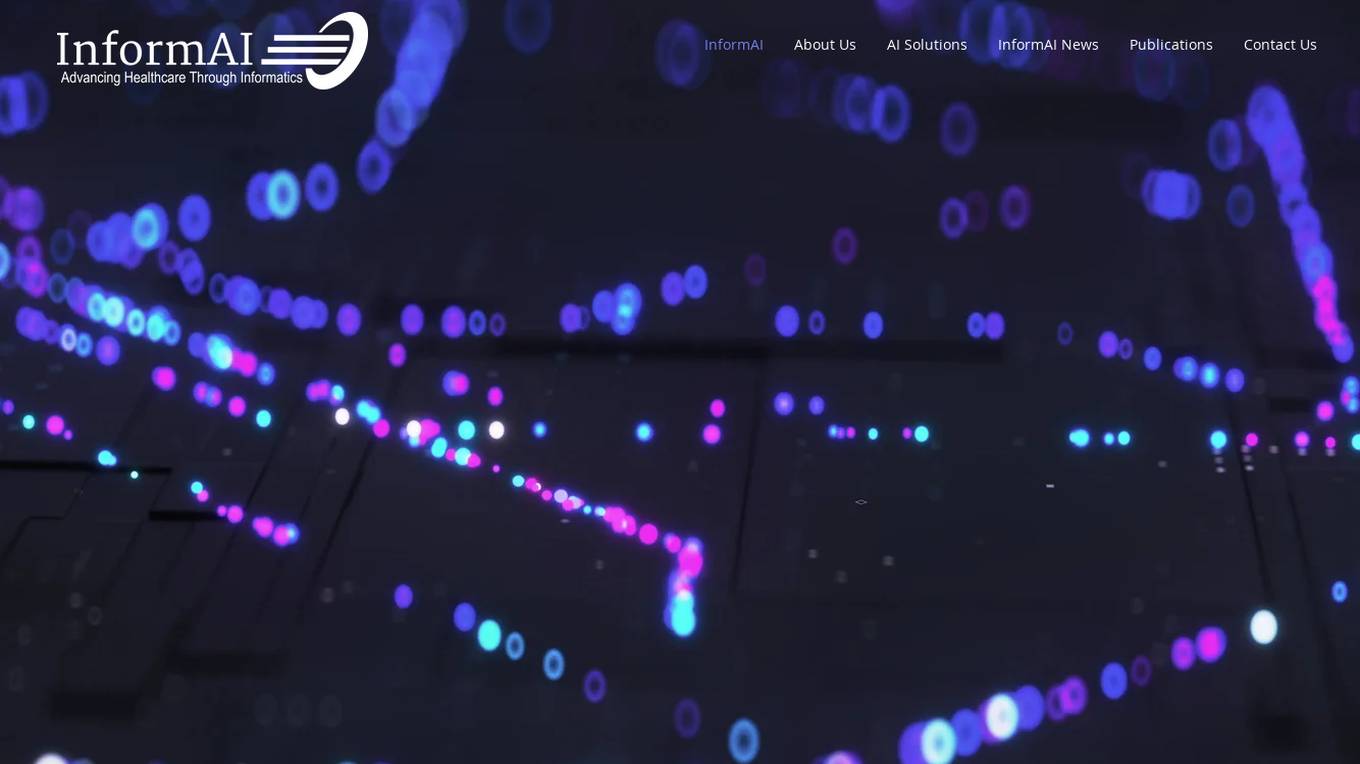
InformAI
InformAI is a technology company dedicated to advancing healthcare through the development of AI-driven solutions. We focus on crafting high-quality, AI-driven enterprise software solutions that address specific clinical needs. We target critical medical fields including radiology, radiation oncology, and high acuity informatics. Our portfolio, featuring our flagship RadOncAI and our development pipeline products of SinusAI and TransplantAI, is designed to deliver impactful solutions that enhance healthcare quality, safety and efficiency.
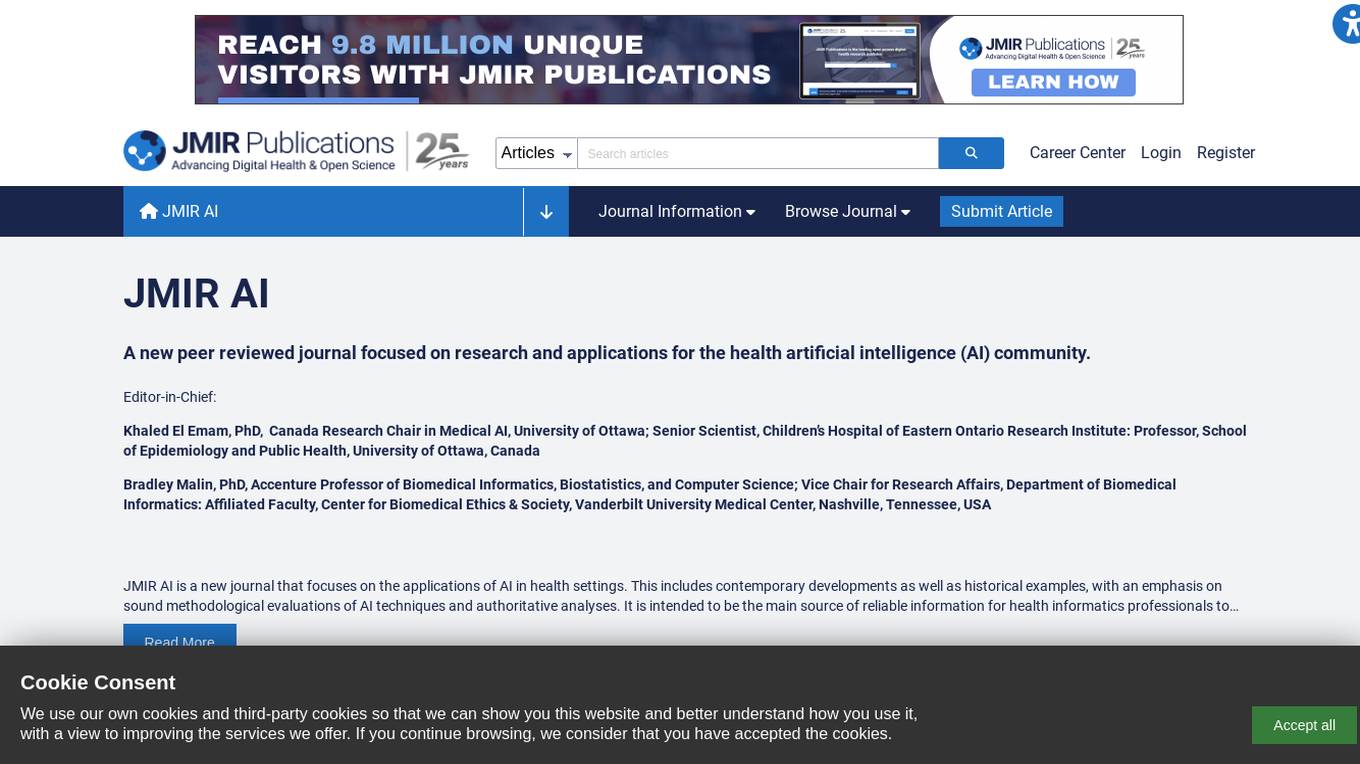
JMIR AI
JMIR AI is a new peer-reviewed journal focused on research and applications for the health artificial intelligence (AI) community. It includes contemporary developments as well as historical examples, with an emphasis on sound methodological evaluations of AI techniques and authoritative analyses. It is intended to be the main source of reliable information for health informatics professionals to learn about how AI techniques can be applied and evaluated.
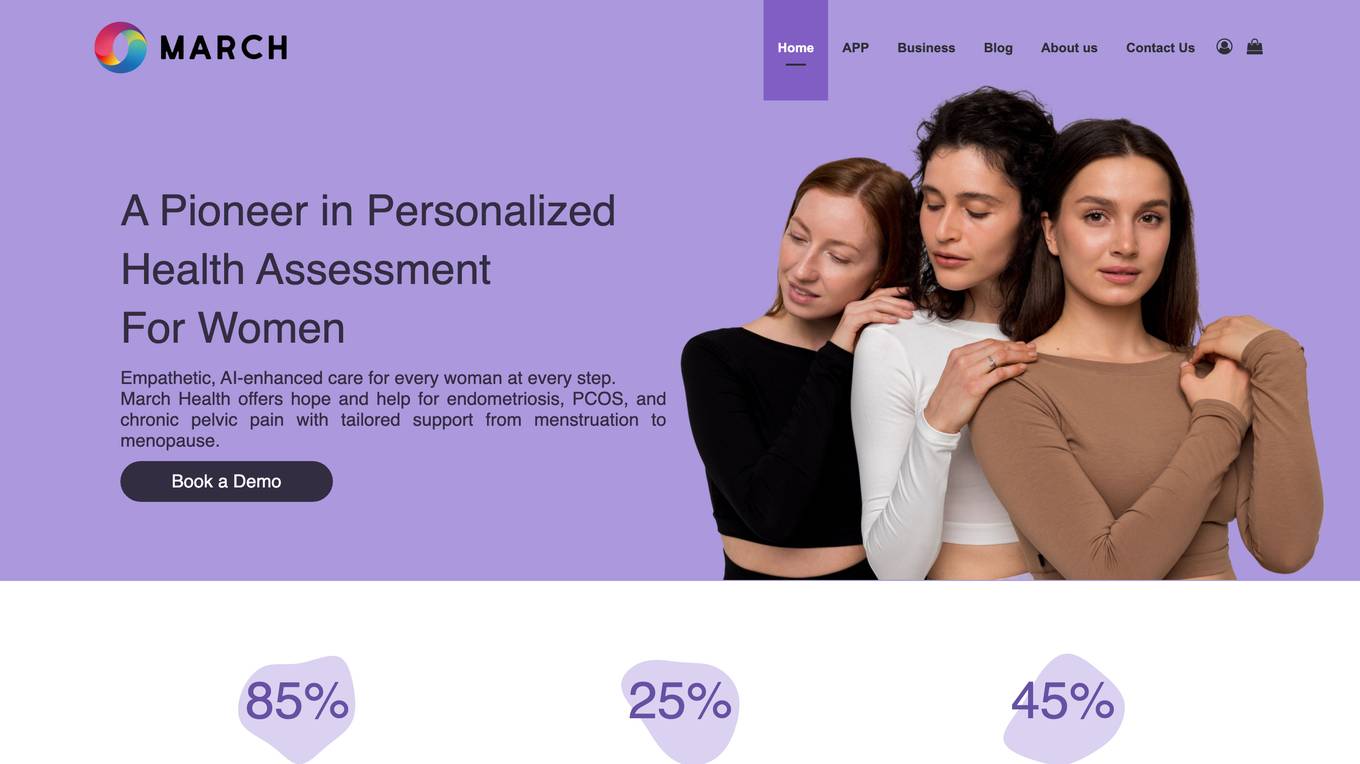
March Health
March Health is an AI-powered platform that offers a digital twin solution for healthcare organizations to improve patient care, reduce costs, and enhance clinician efficiency. The platform utilizes multi-agent systems and real-time insights to address critical challenges in hospital care, such as readmissions risk, safety failures, and value-based payments. By integrating with existing EHR systems and leveraging AI agents for infection monitoring, discharge planning, and real-time guidance, March Health aims to transform healthcare delivery through intelligent automation and continuous improvement.
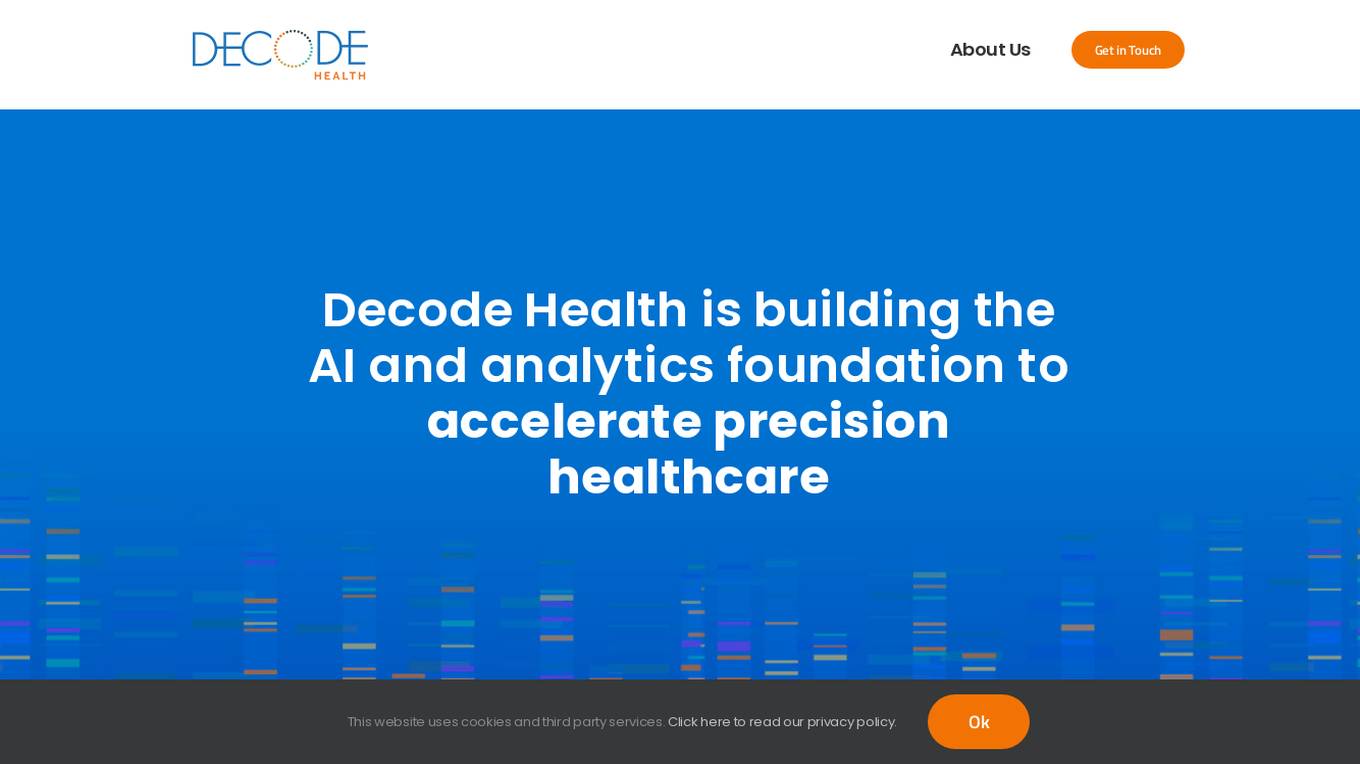
Decode Health
Decode Health is an AI and analytics platform that accelerates precision healthcare by supporting healthcare teams in launching machine learning and advanced analytics projects. The platform collaborates with pharmaceutical companies to enhance patient selection, biomarker identification, diagnostics development, data asset creation, and analysis. Decode Health offers modules for biomarker discovery, patient recruitment, next-generation sequencing, data analysis, and clinical decision support. The platform aims to provide fast, accurate, and actionable insights for acute and chronic disease management. Decode Health's custom-built modules are designed to work together to solve complex data problems efficiently.
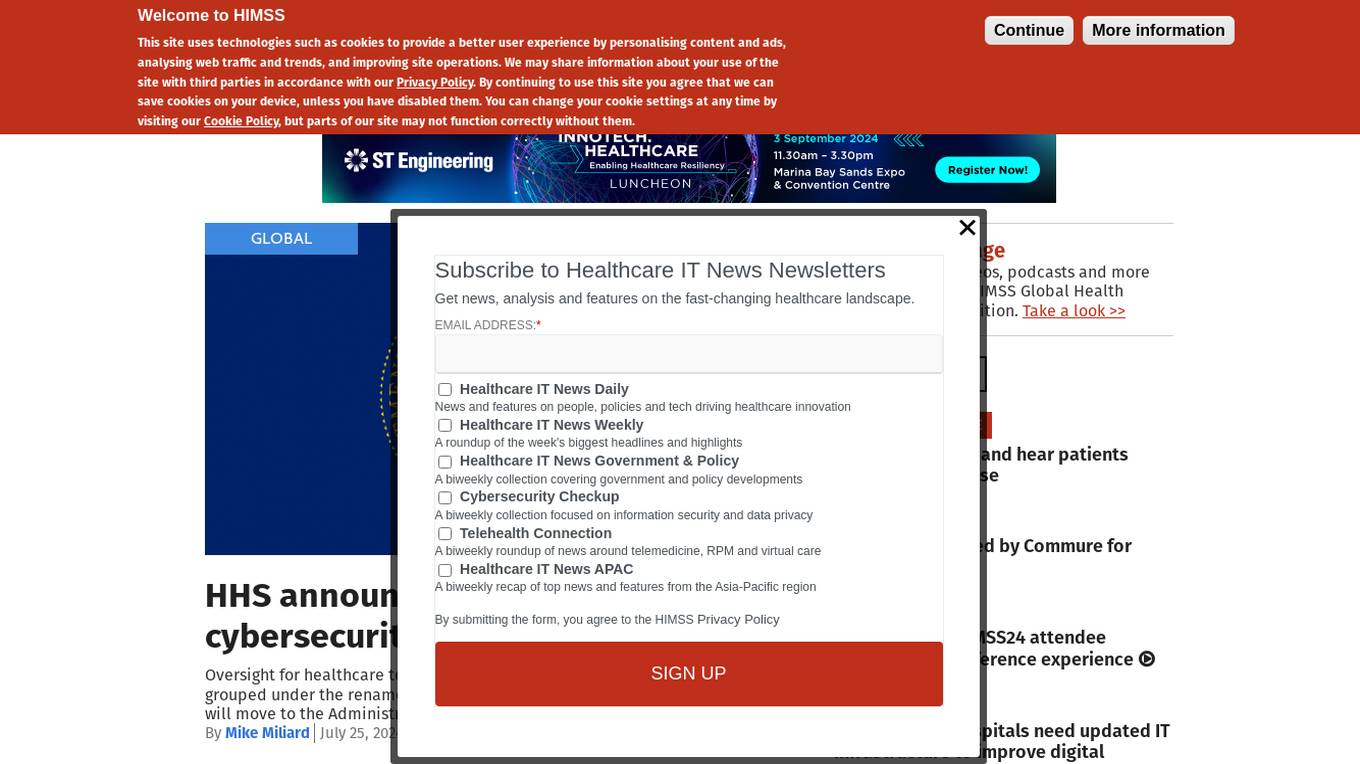
Healthcare IT News
Healthcare IT News is an AI-powered platform that provides the latest news and updates in the healthcare IT industry. The platform covers a wide range of topics including video analytics, artificial intelligence, cloud computing, EHR, government & policy, interoperability, patient engagement, population health, precision medicine, privacy & security, and telehealth. It offers insights, articles, and special projects related to AI, ML intelligence, cybersecurity, and more. Healthcare IT News aims to keep healthcare professionals informed about the latest trends and developments in the field.
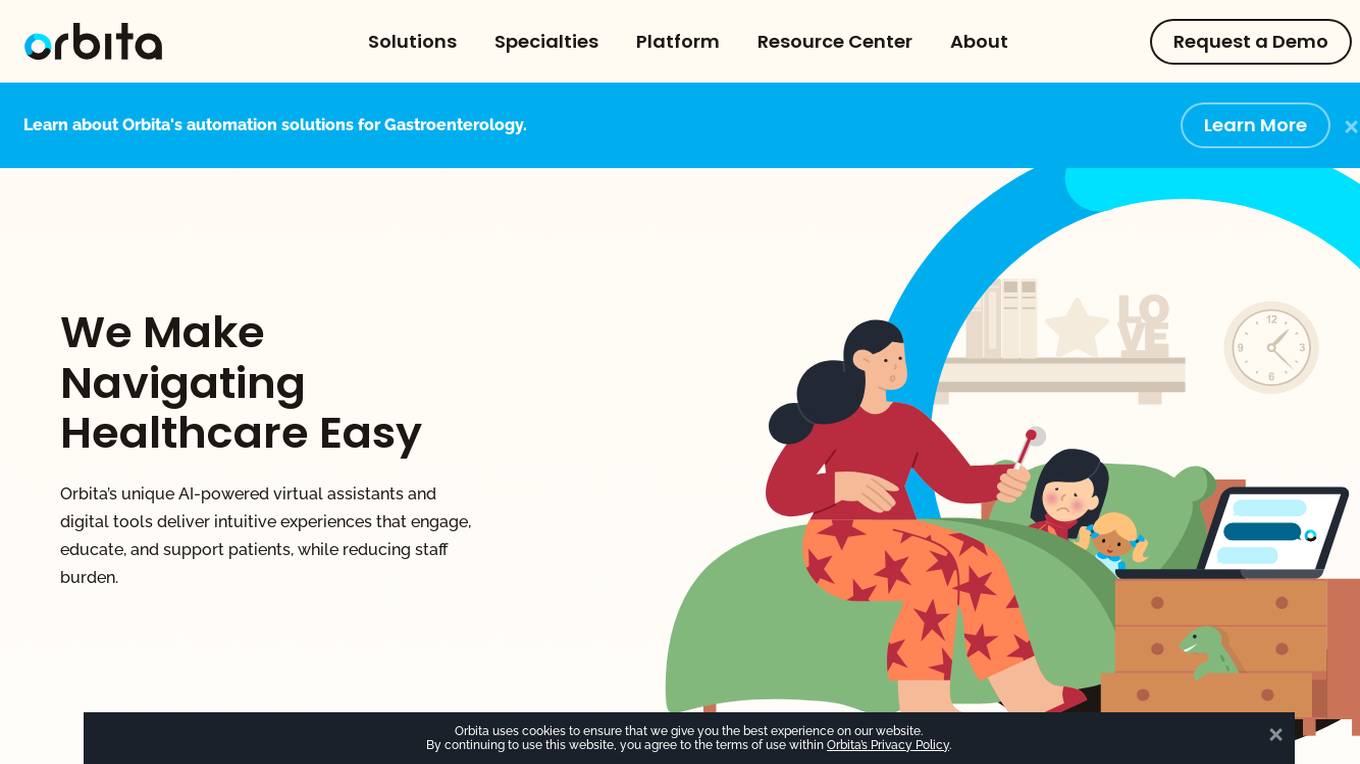
Orbita
Orbita is an AI-powered patient engagement and communication platform that offers automation solutions for healthcare providers. It provides virtual assistants and digital tools to streamline patient care, improve operational efficiency, and enhance the overall patient experience. Orbita's solutions include Digital Front Door, Patient Access and Acquisition, and Care Navigation, which leverage advanced AI technology to support patients and staff across the healthcare journey.
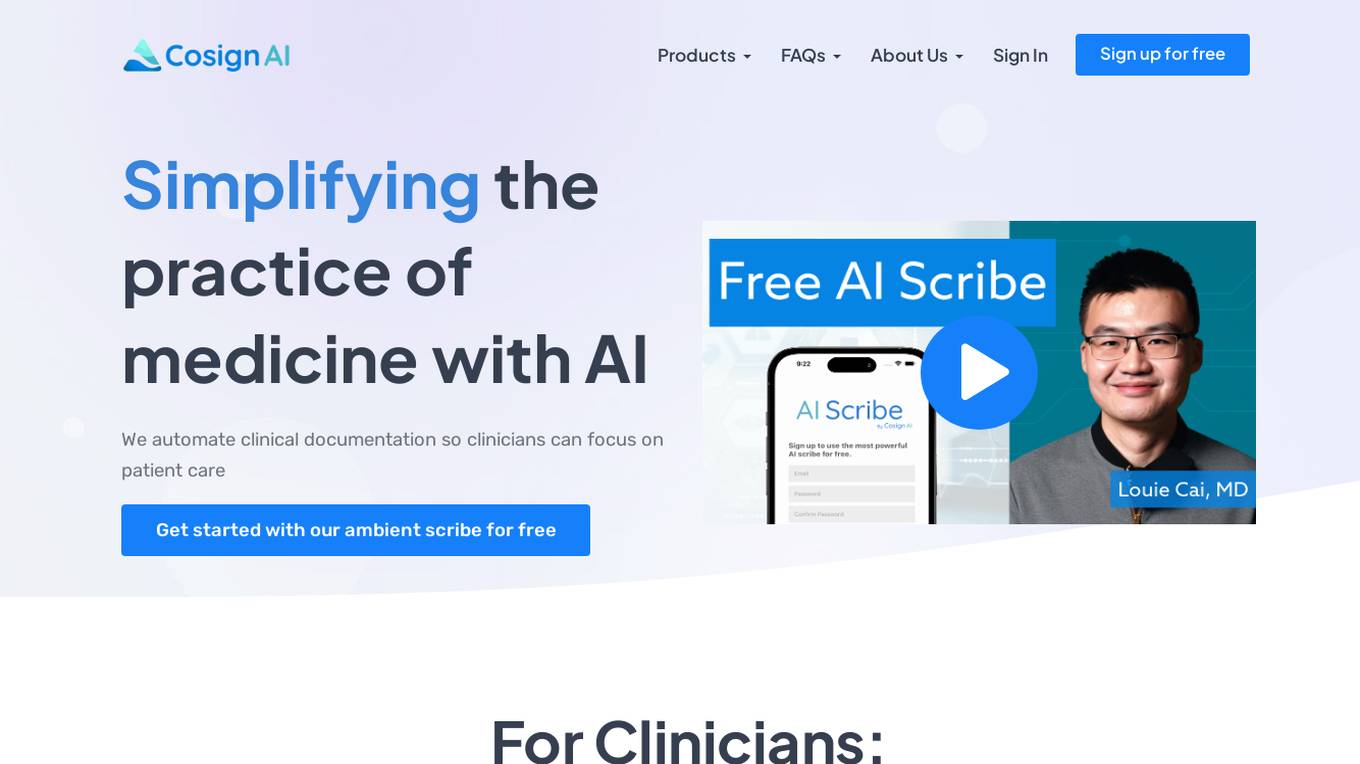
Cosign AI
Cosign AI is an AI application that optimizes clinical practices by automating clinical documentation through an ambient scribe. The tool transforms conversations and dictations into clinical notes using large language models and customizable templates. It prioritizes HIPAA compliance and data security, ensuring a secure infrastructure for storing and processing protected health information. Clinicians can save time, reduce burnout, and improve note quality with this innovative solution.
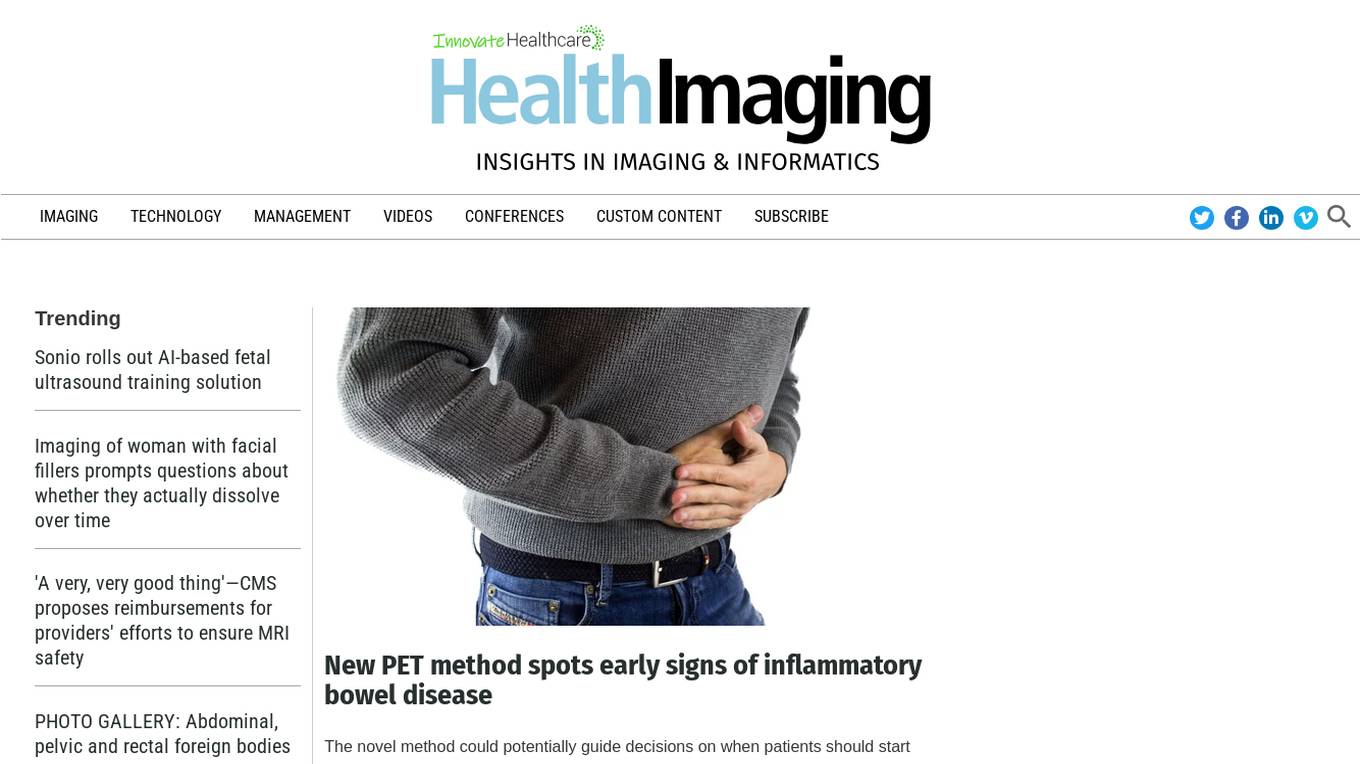
Health Imaging
Health Imaging is an AI-powered platform that focuses on providing cutting-edge solutions in medical imaging and healthcare management. The platform offers a wide range of features and tools that leverage artificial intelligence to enhance diagnostic accuracy, streamline workflows, and improve patient care. From advanced imaging technologies to AI-based training solutions, Health Imaging is at the forefront of innovation in the healthcare industry.
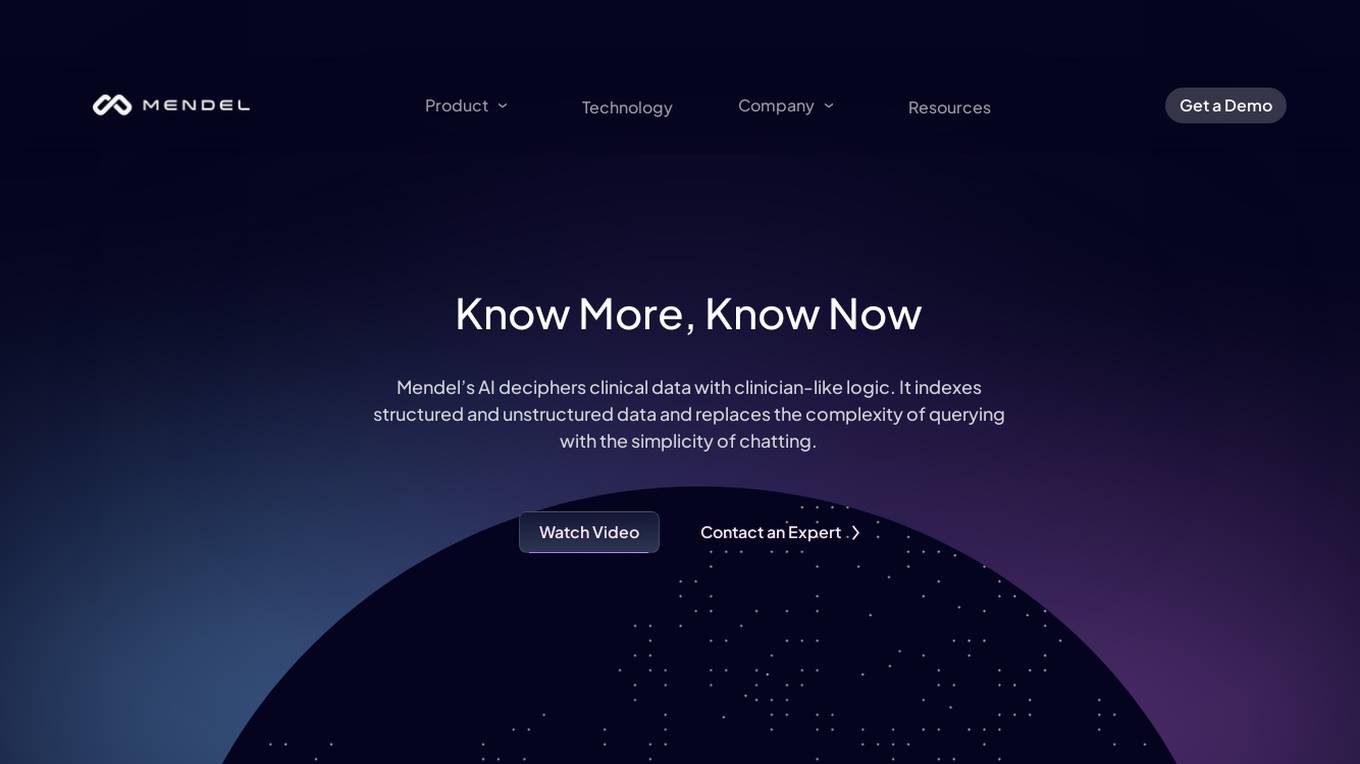
Mendel AI
Mendel AI is an advanced clinical AI tool that deciphers clinical data with clinician-like logic. It offers a fully integrated suite of clinical-specific data processing products, combining OCR, de-identification, and clinical reasoning to interpret medical records. Users can ask questions in plain English and receive accurate answers from health records in seconds. Mendel's technology goes beyond traditional AI by understanding patient-level data and ensuring consistency and explainability of results in healthcare.
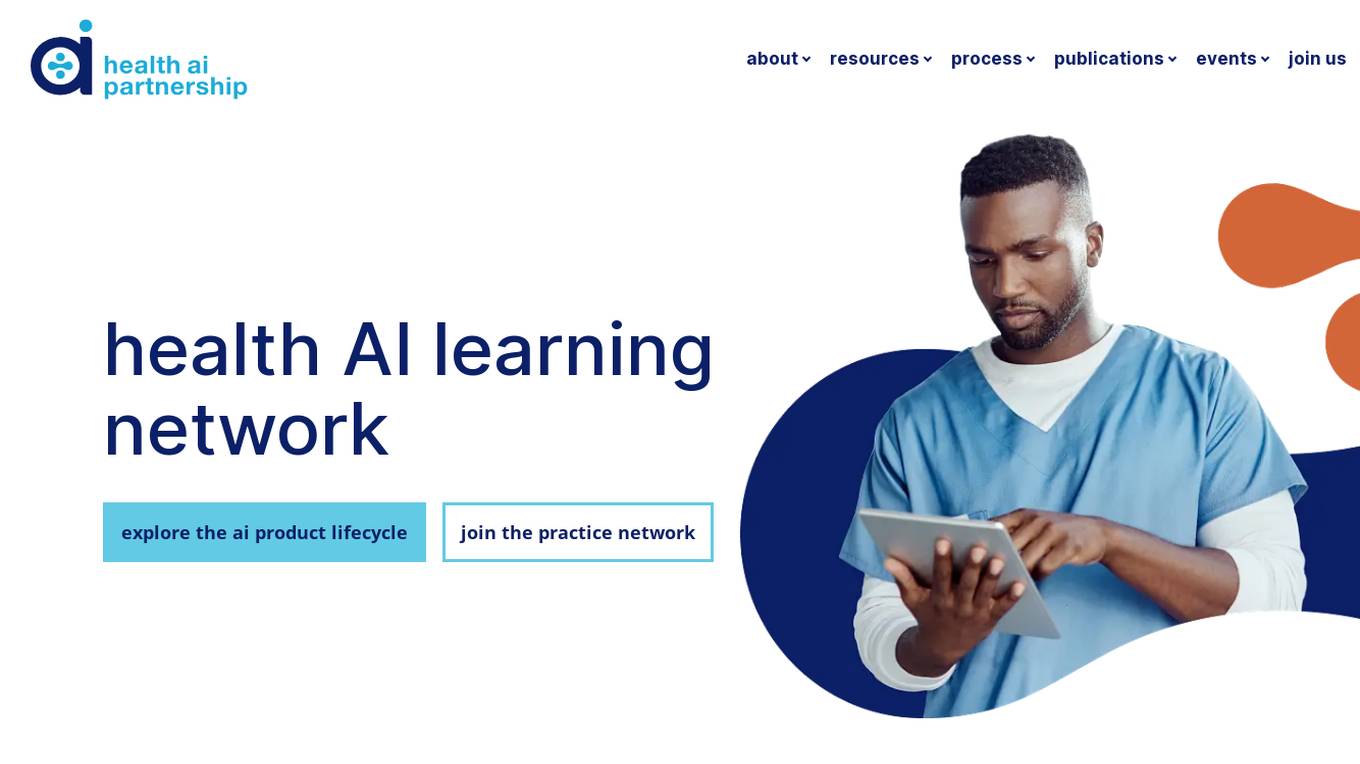
Health AI Partnership
Health AI Partnership (HAIP) is an AI tool designed to empower healthcare professionals to effectively, safely, and equitably use AI through community-informed up-to-date standards. The platform offers resources, publications, events, and a practice network to advance the use of AI in healthcare and support professionals in implementing AI solutions.
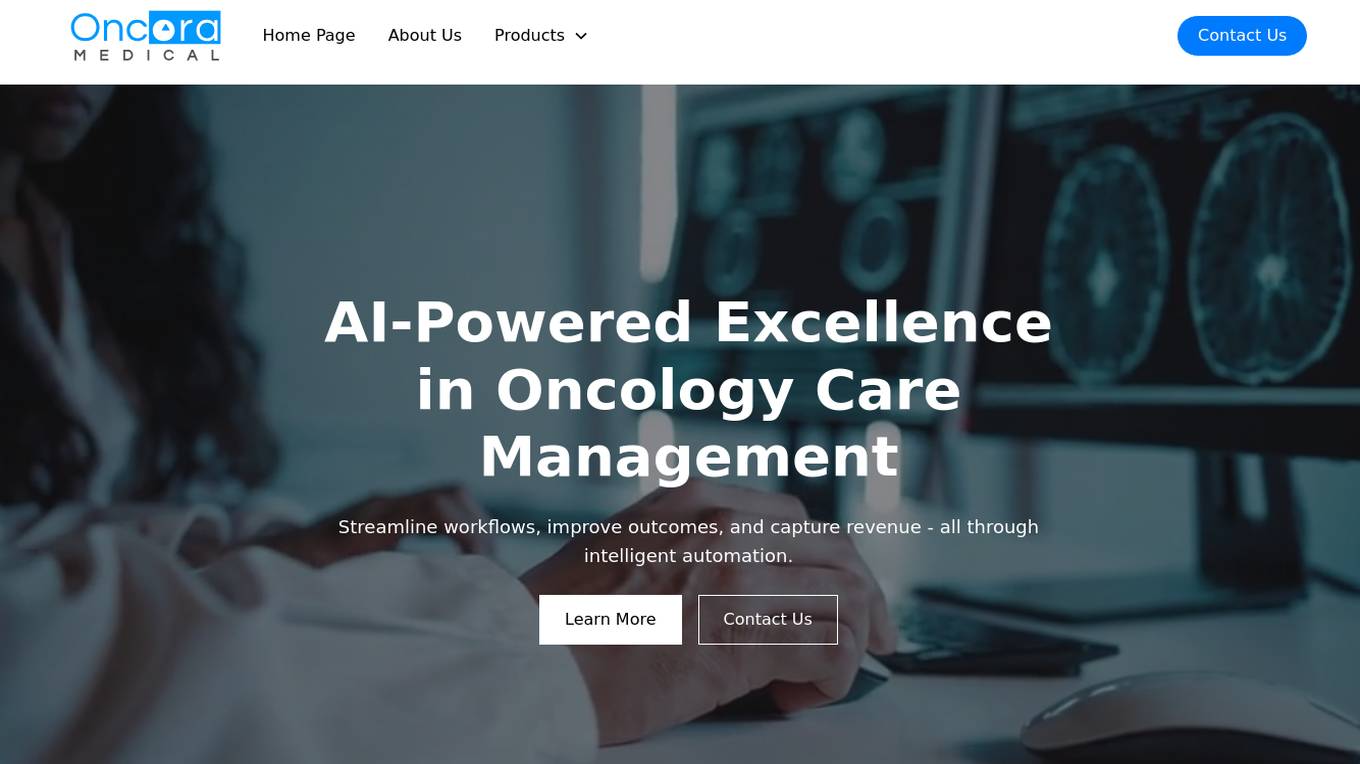
Oncora Medical
Oncora Medical is an AI-powered platform that revolutionizes oncology care management. The platform offers a Clinical Data Platform for automating document generation and enhancing registry informatics. It provides AI-enabled case findings, revenue cycle management solutions, and cancer registry automation. Oncora's comprehensive AI solutions streamline workflows, improve outcomes, and capture revenue through intelligent automation. Trusted by top healthcare organizations worldwide, Oncora empowers healthcare organizations to achieve remarkable results in oncology care.
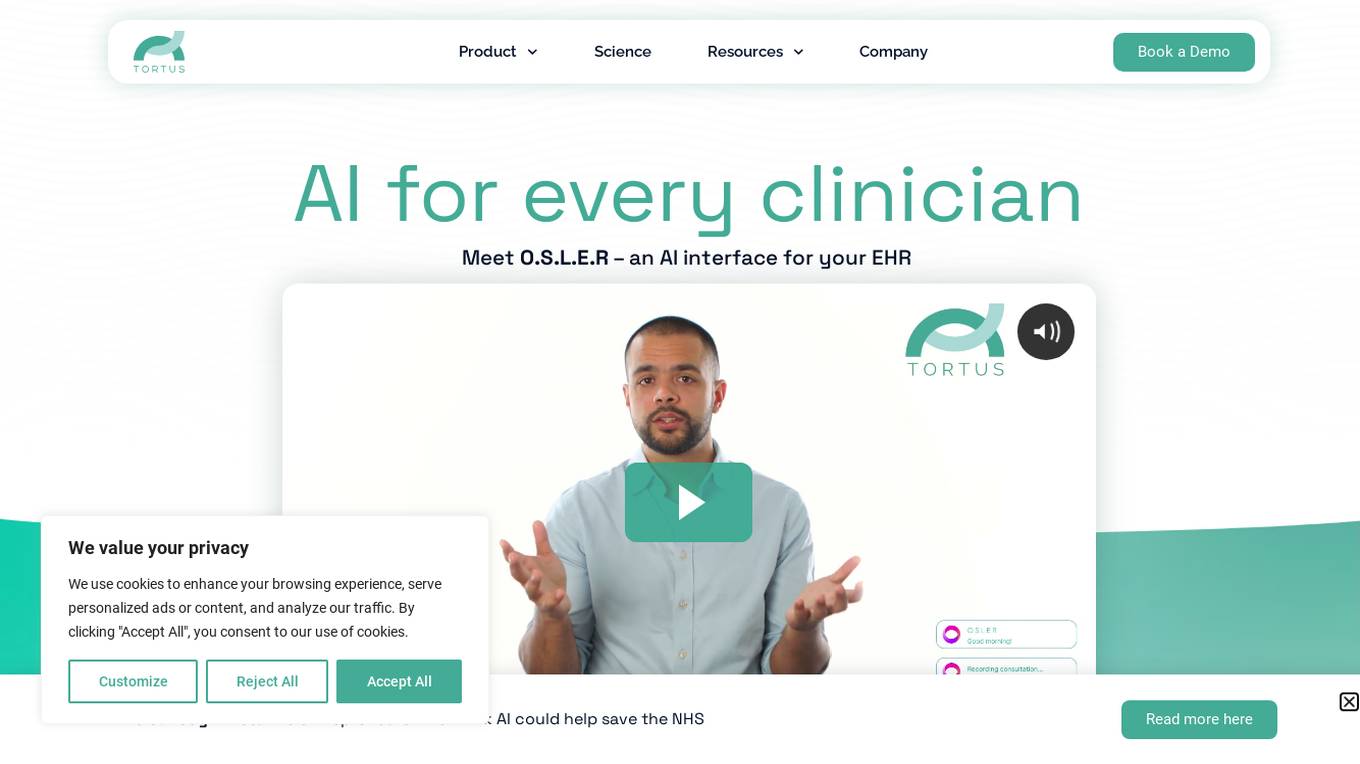
TORTUS
TORTUS is an AI application designed for doctors and clinicians, offering an AI interface for Electronic Health Records (EHR). It aims to provide faster, better, and kinder care by automating tasks such as record transcription, note generation, and clinical coding. The application is fully compliant with healthcare regulations and prioritizes data security. O.S.L.E.R. is positioned as a digital worker for digital work, enhancing patient outcomes and relieving clinician burnout through clinician-AI co-working.

CBIIT
The National Cancer Institute's Center for Biomedical Informatics and Information Technology (CBIIT) provides a comprehensive suite of tools, resources, and training to support cancer data science research. These resources include data repositories, analytical tools, data standards, and training materials. CBIIT also develops and maintains the NCI Thesaurus, a comprehensive vocabulary of cancer-related terms, and the Cancer Data Standards Registry and Repository (caDSR), a repository of cancer data standards. CBIIT's mission is to accelerate the pace of cancer research by providing researchers with the tools and resources they need to access, analyze, and share cancer data.
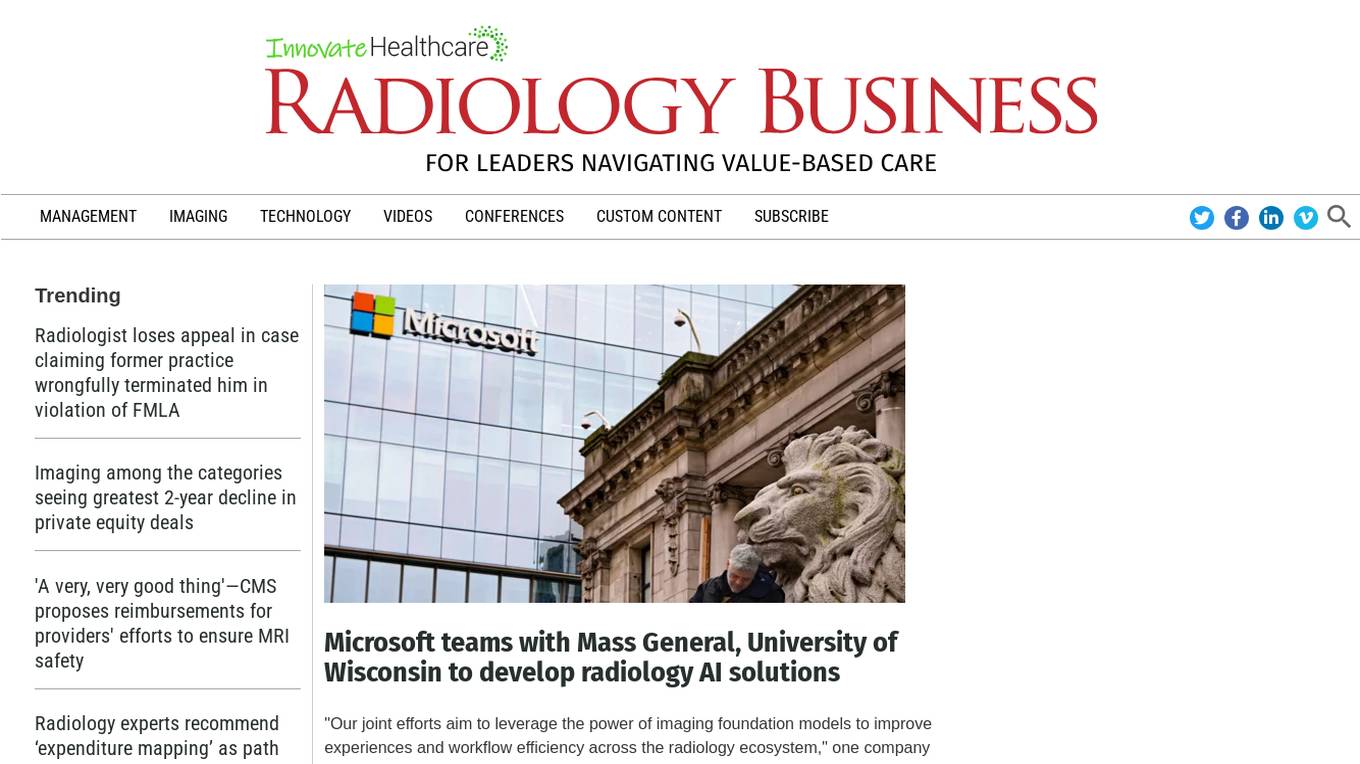
Radiology Business
Radiology Business is an AI tool designed to provide insights and solutions for professionals in the radiology field. The platform covers a wide range of topics including management, imaging, technology, and conferences. It offers news, analysis, and resources to help radiologists stay informed and make informed decisions. Radiology Business aims to leverage artificial intelligence to improve workflow efficiency and enhance the overall experience in the radiology ecosystem.
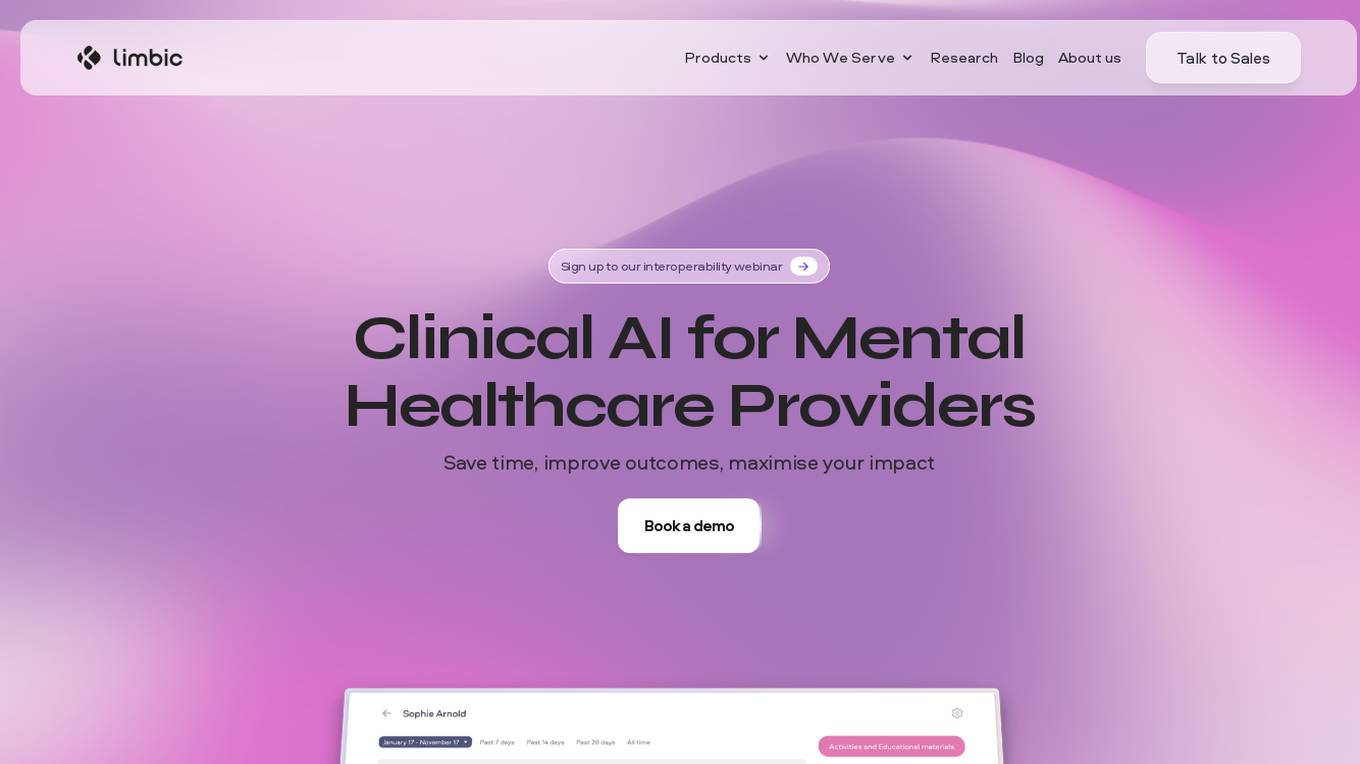
Limbic
Limbic is a clinical AI application designed for mental healthcare providers to save time, improve outcomes, and maximize impact. It offers a suite of tools developed by a team of therapists, physicians, and PhDs in computational psychiatry. Limbic is known for its evidence-based approach, safety focus, and commitment to patient care. The application leverages AI technology to enhance various aspects of the mental health pathway, from assessments to therapeutic content delivery. With a strong emphasis on patient safety and clinical accuracy, Limbic aims to support clinicians in meeting the rising demand for mental health services while improving patient outcomes and preventing burnout.
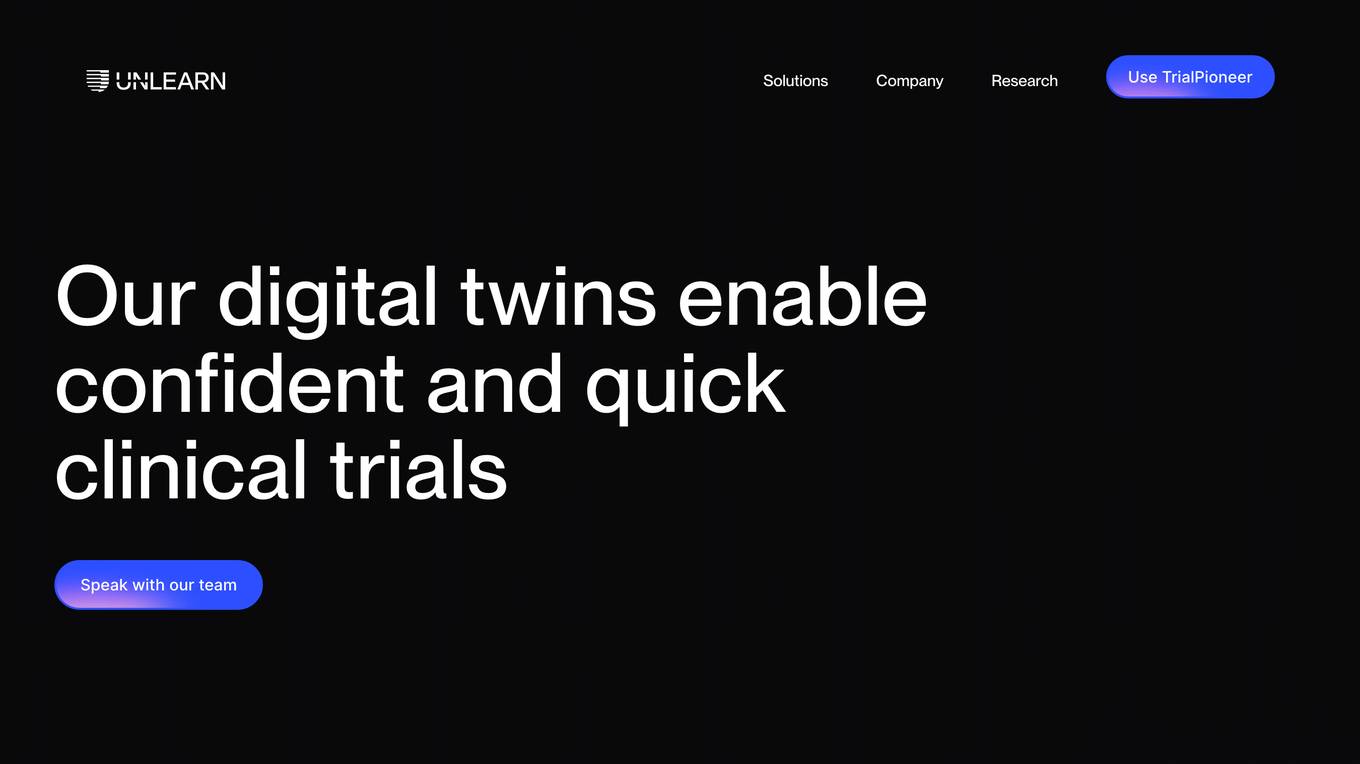
Unlearn.ai
Unlearn.ai is an AI-powered platform that streamlines clinical trials by leveraging digital twins of patients. The platform replaces traditional siloed workflows with a unified workspace for trial design, planning, and analysis. By utilizing digital twins, data, and AI, Unlearn.ai helps teams achieve alignment faster, test assumptions earlier, and move forward with confidence in clinical development.
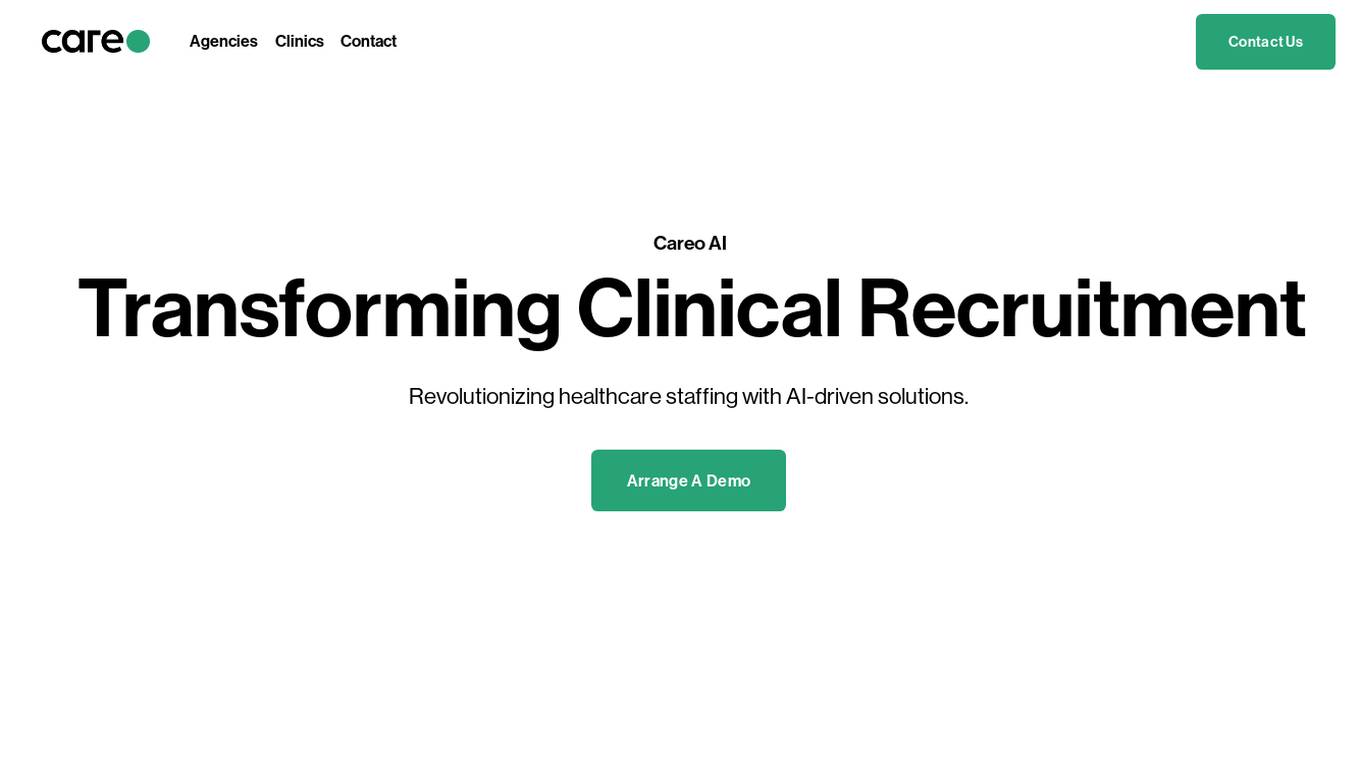
Careo AI
Careo AI is an advanced AI-driven solution that is transforming clinical recruitment and revolutionizing healthcare staffing. The platform offers cutting-edge technology to streamline candidate management, vacancy tracking, workflow automation, analytics, and reporting. It provides seamless integration with existing systems, customization, and scalability for recruitment agencies. Careo AI aims to optimize recruitment strategies and enhance productivity in the healthcare industry.
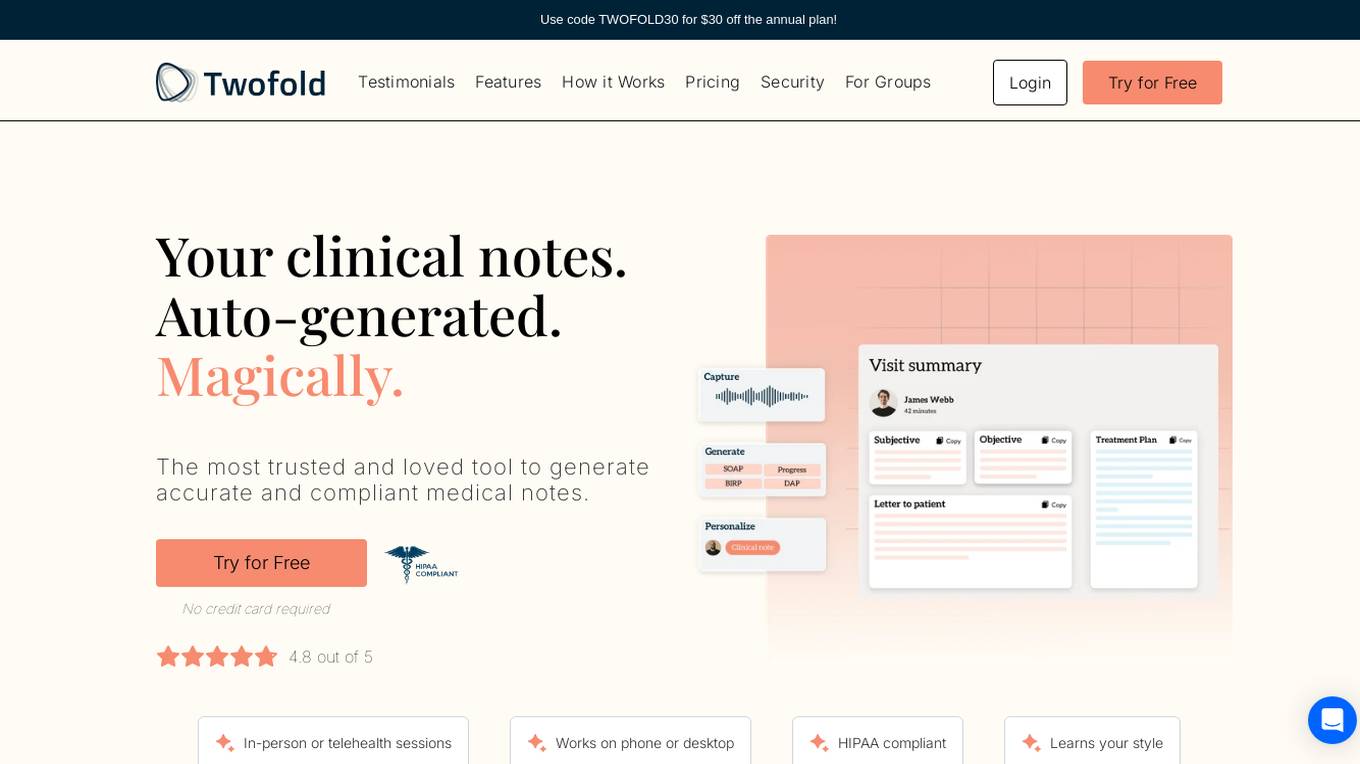
Twofold Health
Twofold Health is an AI medical scribe tool designed for clinicians to generate accurate and compliant medical notes effortlessly. It is built by clinicians for clinicians, offering a secure, personalized, and super simple solution that learns your writing style and improves over time. The tool is HIPAA and HITECH compliant, ensuring the security and confidentiality of patient and clinician data. With features like capturing conversations, reviewing and editing notes, and sending auto-generated patient instructions, Twofold Health aims to reduce burnout and improve patient care by allowing clinicians to focus on patients rather than paperwork.
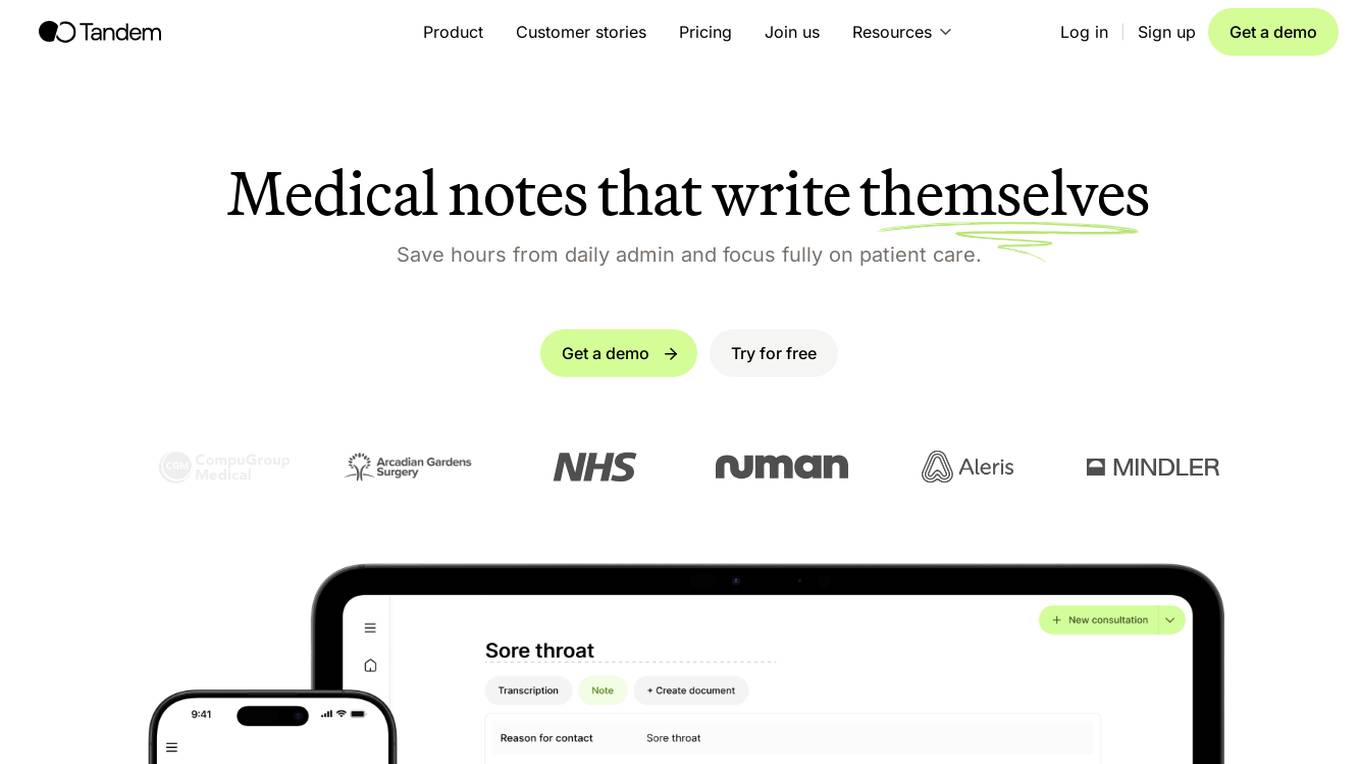
Tandem Health
Tandem Health is an AI medical scribe application that automates clinical notes for healthcare professionals, allowing them to save time on administrative tasks and focus more on patient care. The application supports over 50 specialties, integrates with Electronic Health Records (EHR) systems, and provides features like 1-click EHR transfers, clinical coding, and note generation. Tandem Health prioritizes security and compliance with patient data laws, ensuring that all data is handled securely and within the EU. The application has received positive feedback from healthcare professionals for its accuracy and efficiency in clinical documentation.
0 - Open Source Tools
20 - OpenAI Gpts
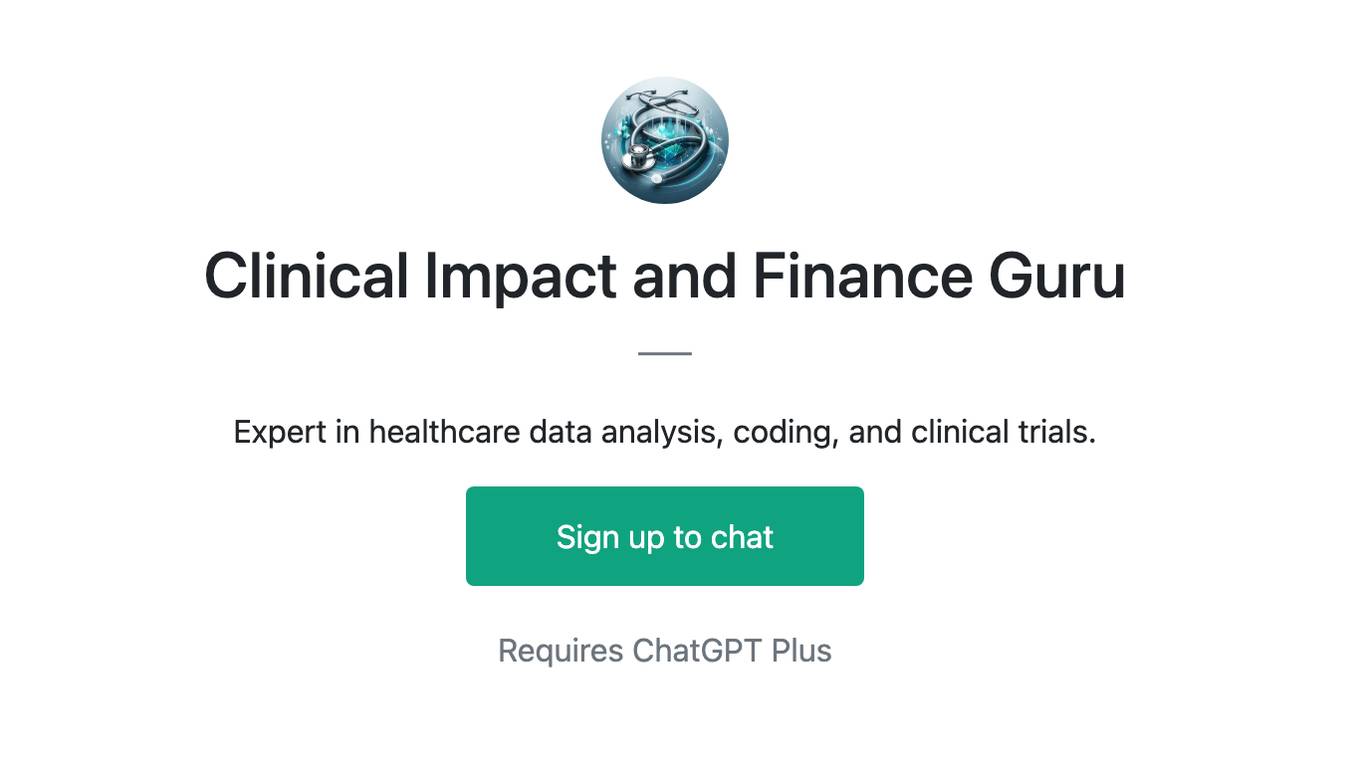
Clinical Impact and Finance Guru
Expert in healthcare data analysis, coding, and clinical trials.
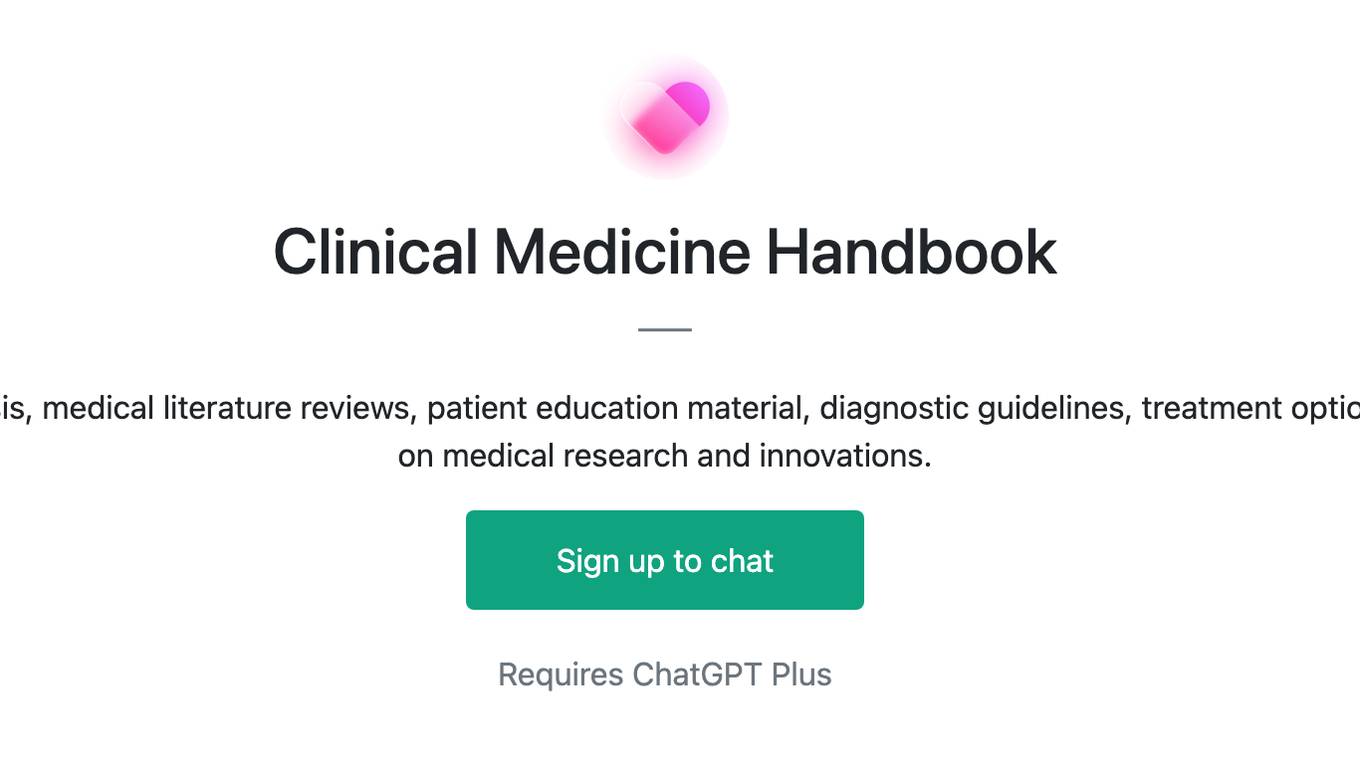
Clinical Medicine Handbook
I can assist doctors with information synthesis, medical literature reviews, patient education material, diagnostic guidelines, treatment options, ethical dilemmas, and staying updated on medical research and innovations.
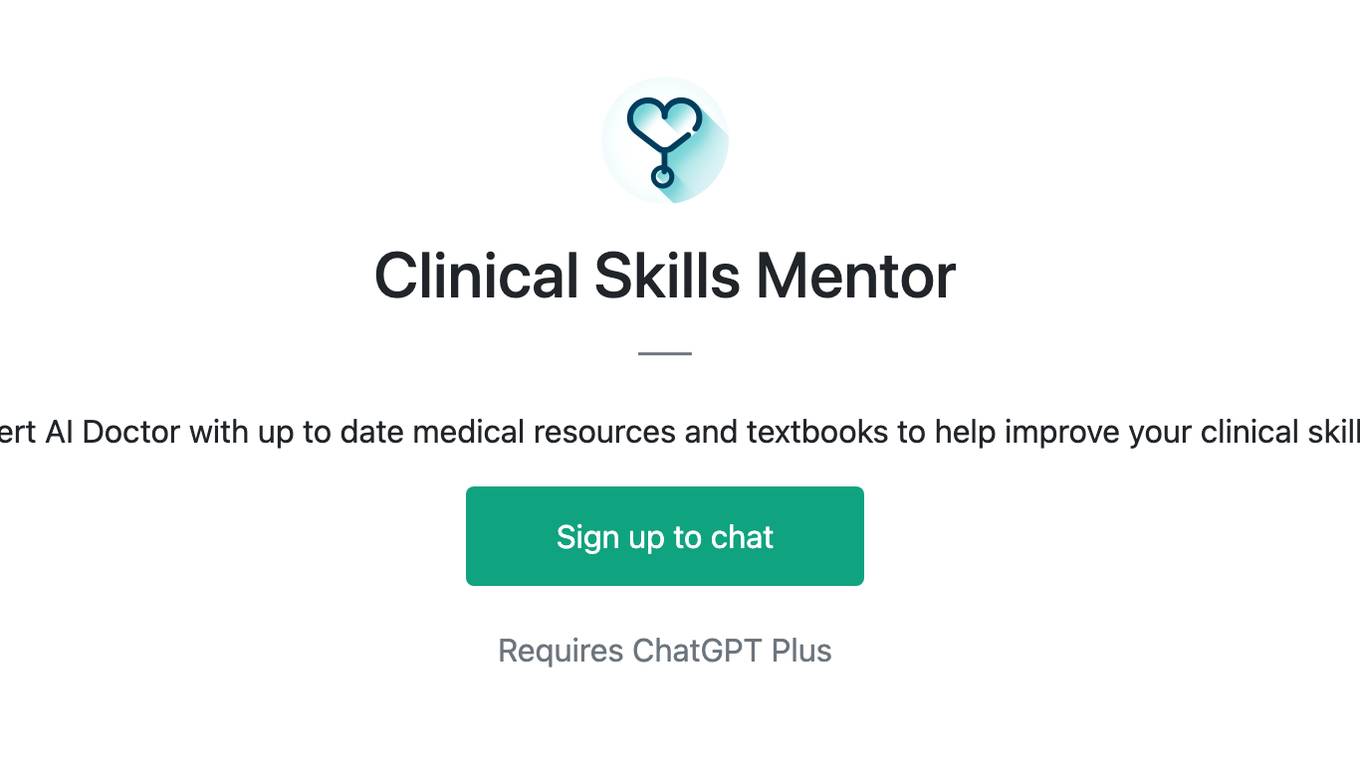
Clinical Skills Mentor
Expert AI Doctor with up to date medical resources and textbooks to help improve your clinical skills.
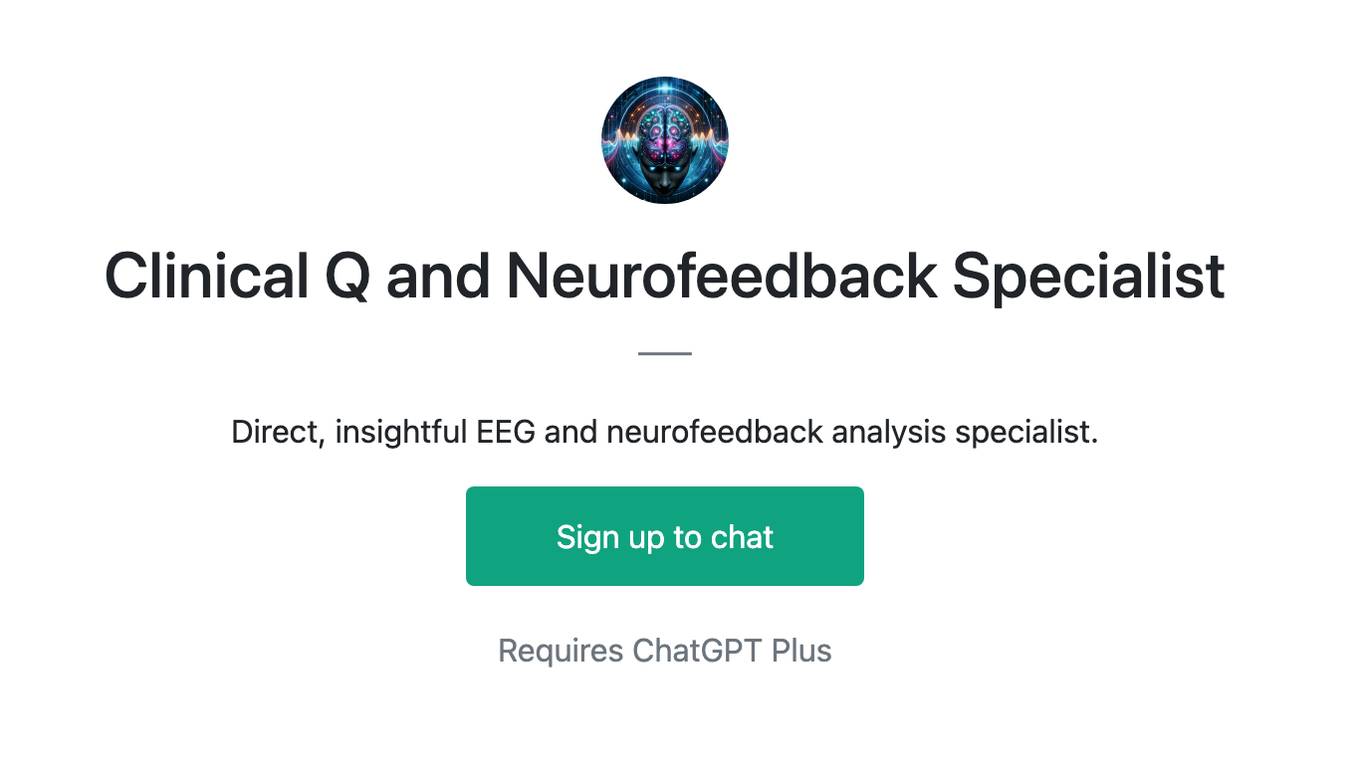
Clinical Q and Neurofeedback Specialist
Direct, insightful EEG and neurofeedback analysis specialist.
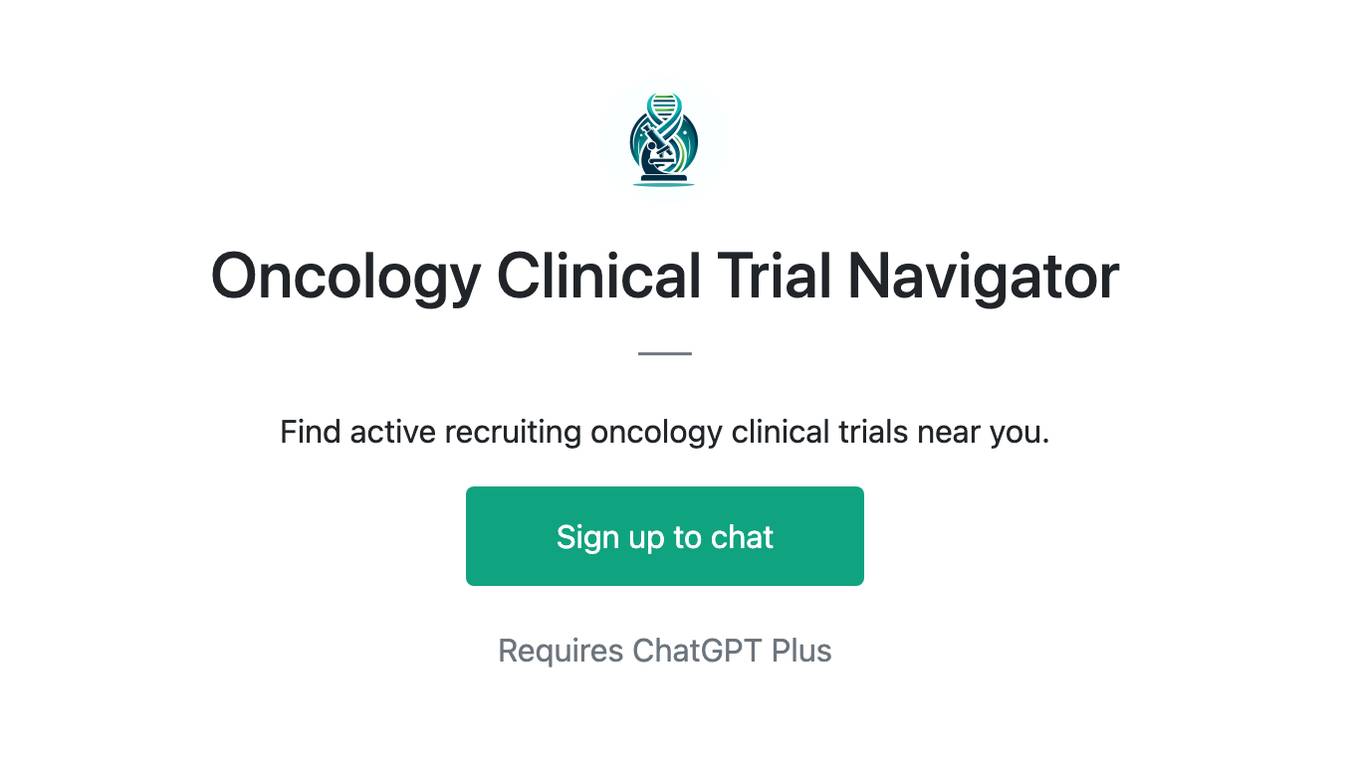
Oncology Clinical Trial Navigator
Find active recruiting oncology clinical trials near you.
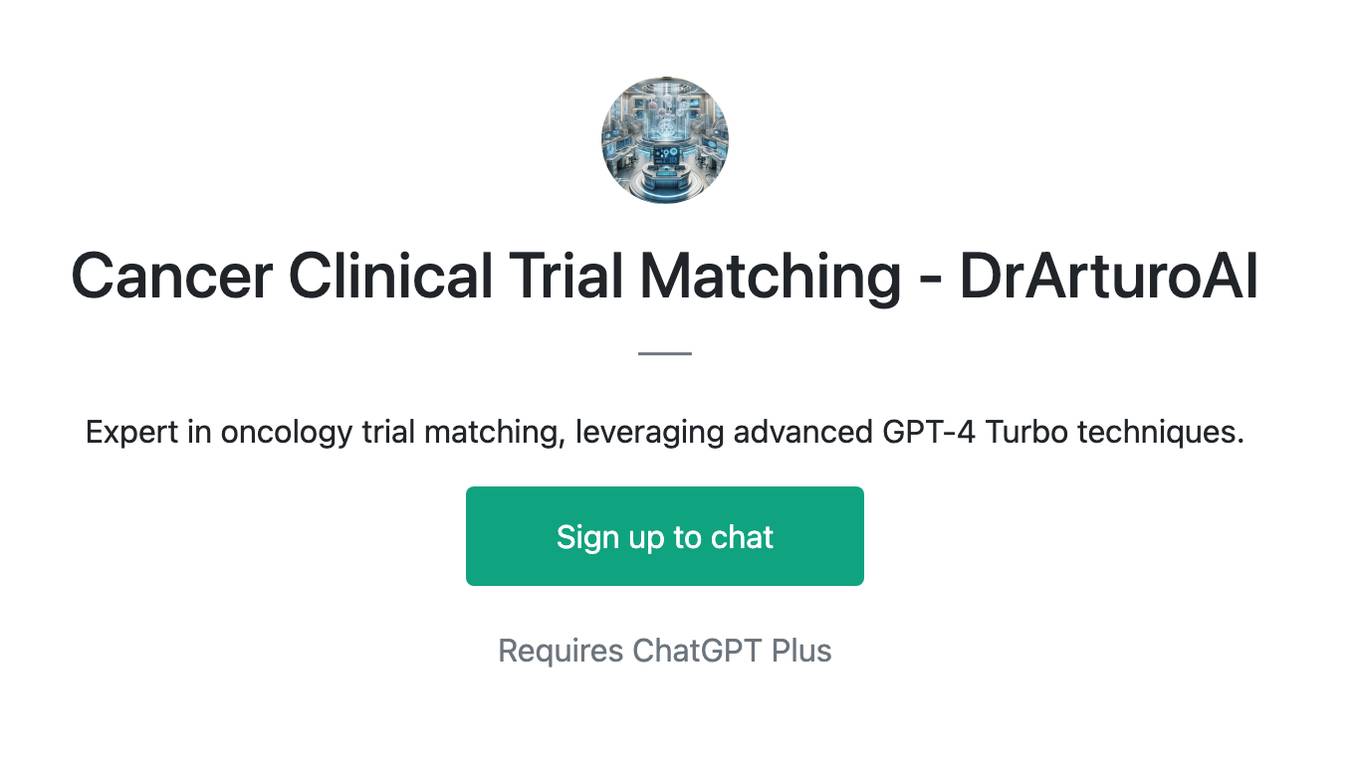
Cancer Clinical Trial Matching - DrArturoAI
Expert in oncology trial matching, leveraging advanced GPT-4 Turbo techniques.
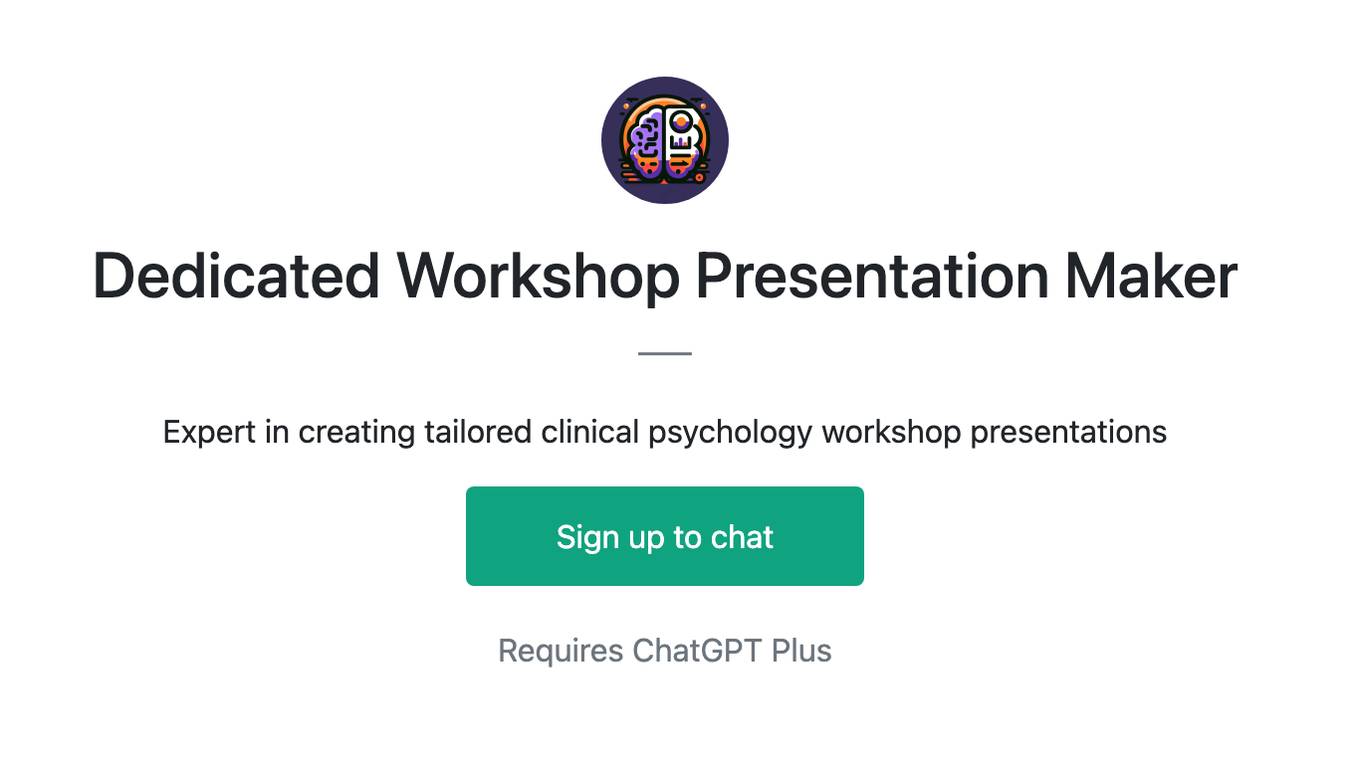
Dedicated Workshop Presentation Maker
Expert in creating tailored clinical psychology workshop presentations
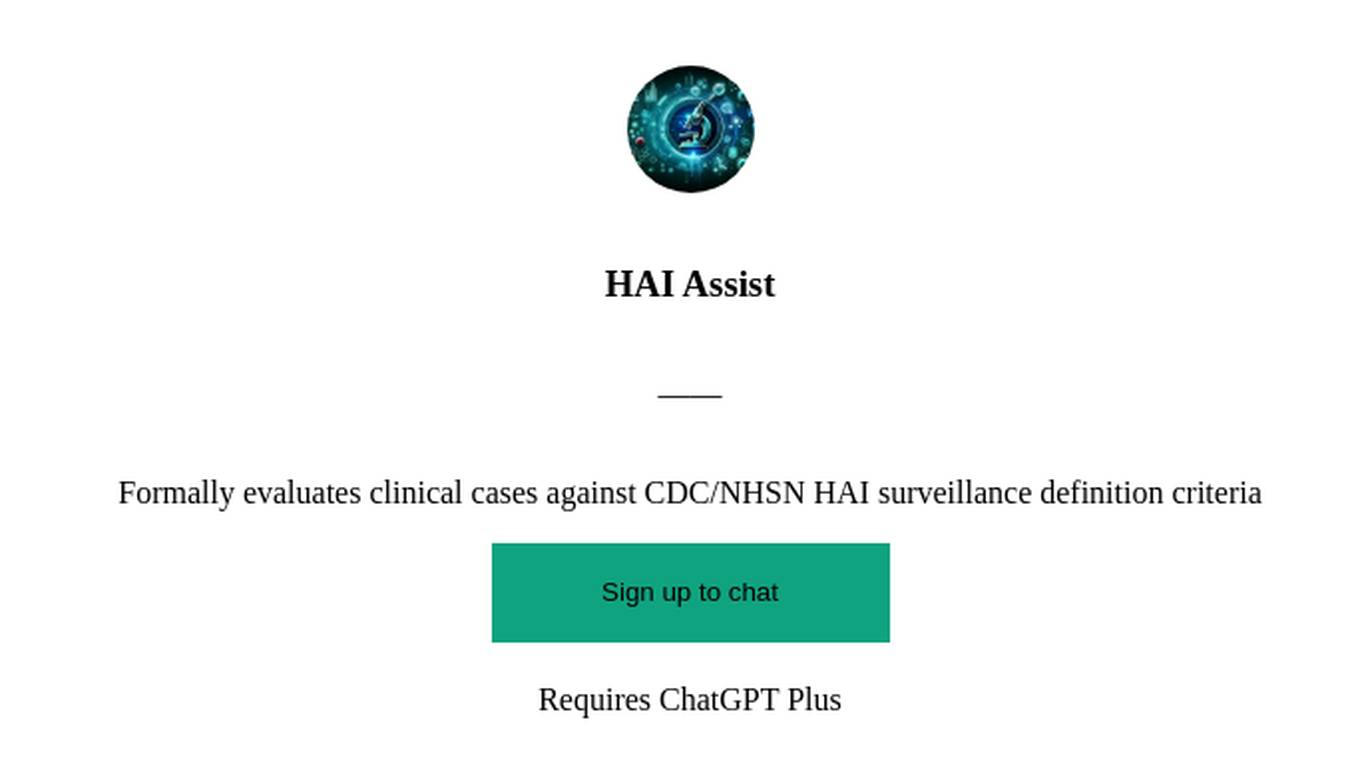
HAI Assist
Formally evaluates clinical cases against CDC/NHSN HAI surveillance definition criteria
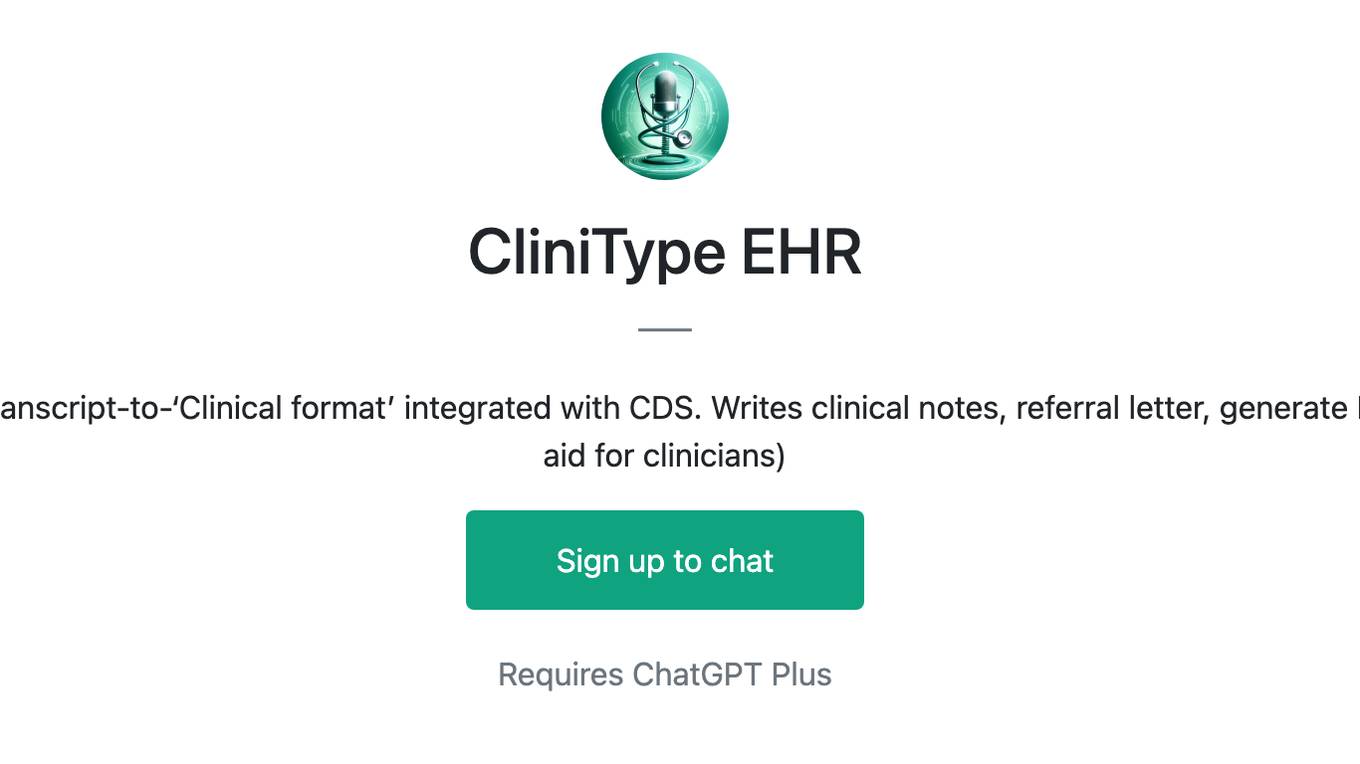
CliniType EHR
Voice-to-text, Vision-to-text transcription, Transcript-to-‘Clinical format’ integrated with CDS. Writes clinical notes, referral letter, generate PDF,prepare discharge summary. (Ultimate aid for clinicians)
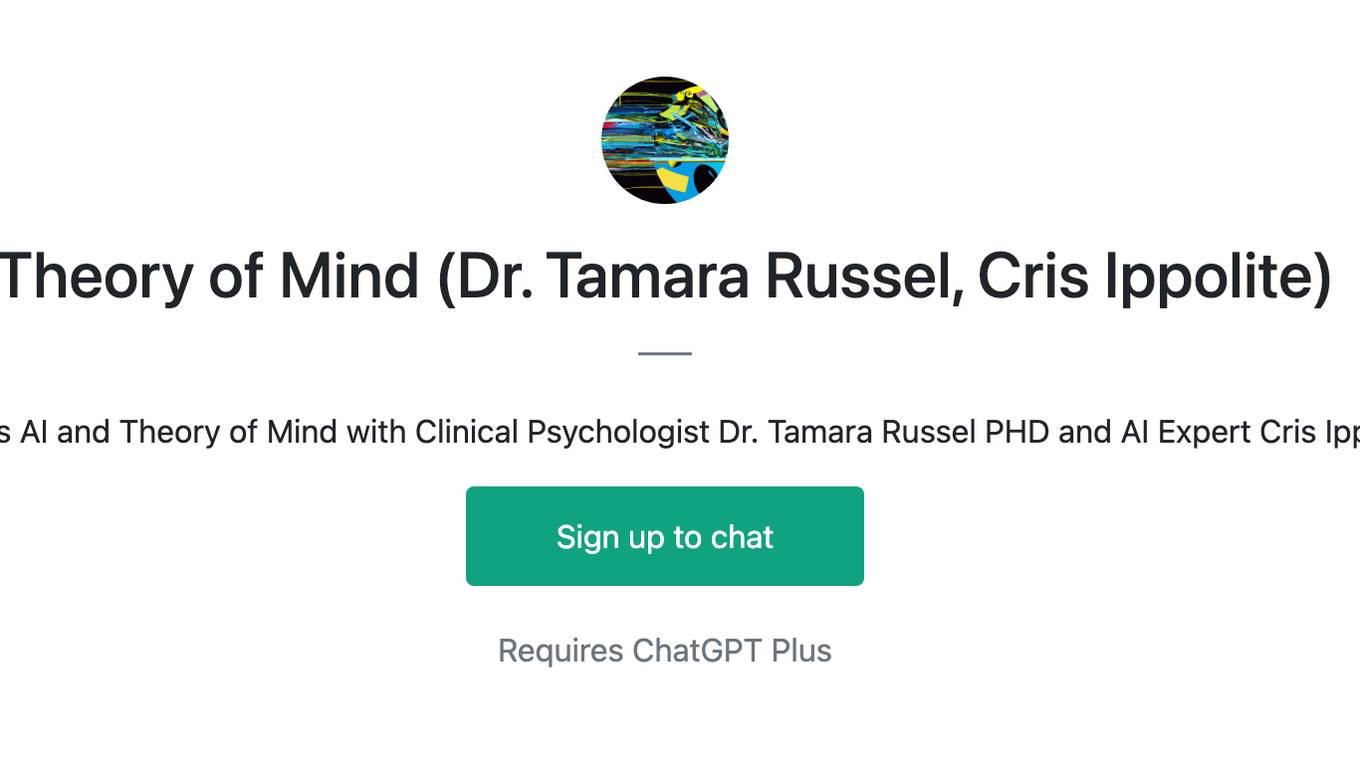
Theory of Mind (Dr. Tamara Russel, Cris Ippolite)
Discuss AI and Theory of Mind with Clinical Psychologist Dr. Tamara Russel PHD and AI Expert Cris Ippolite
